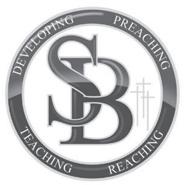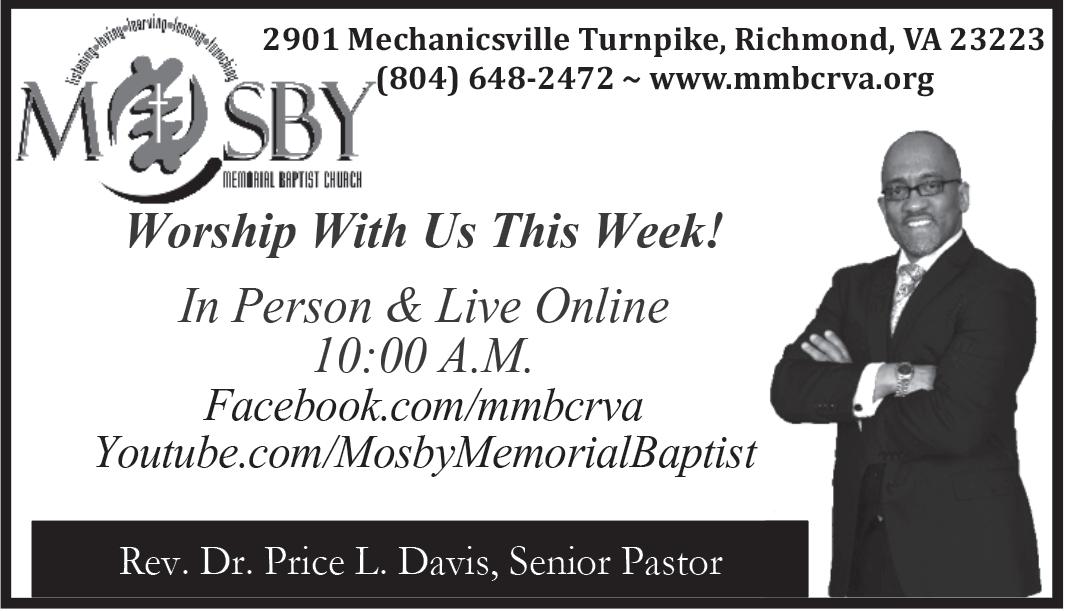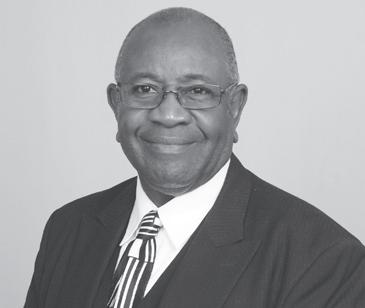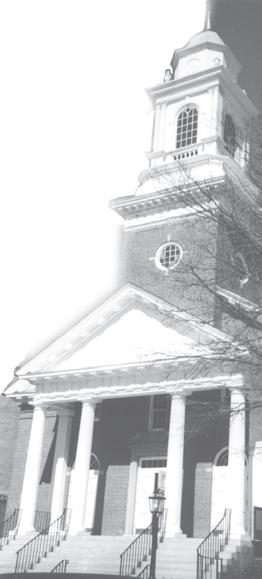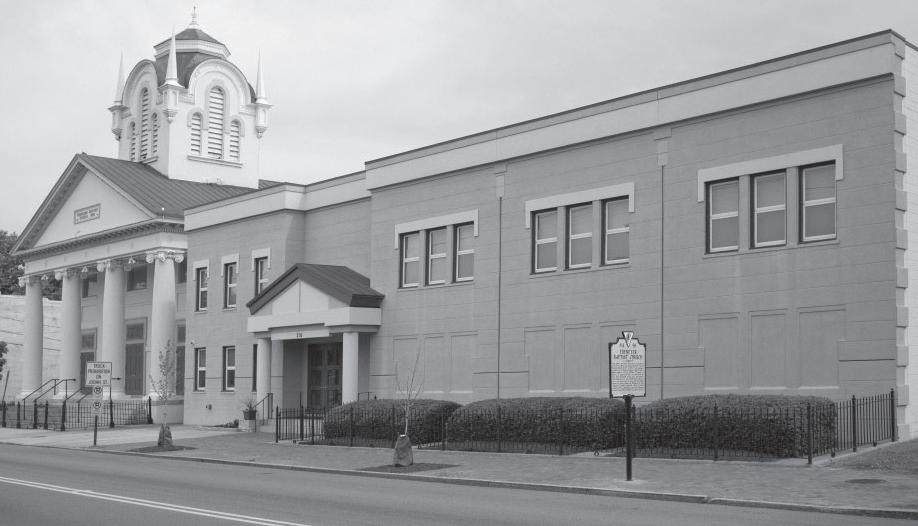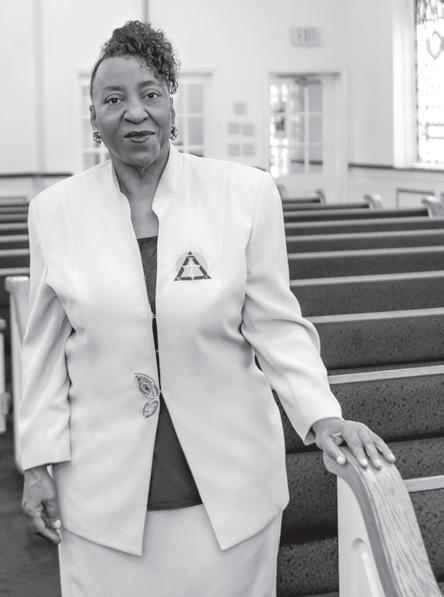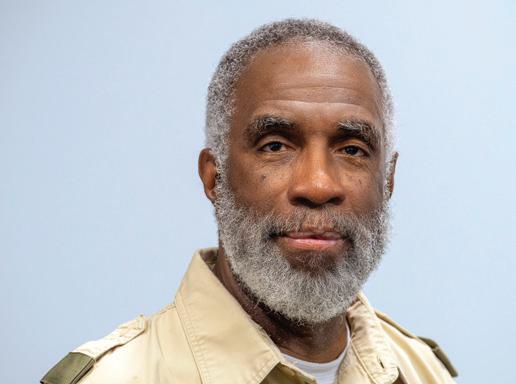
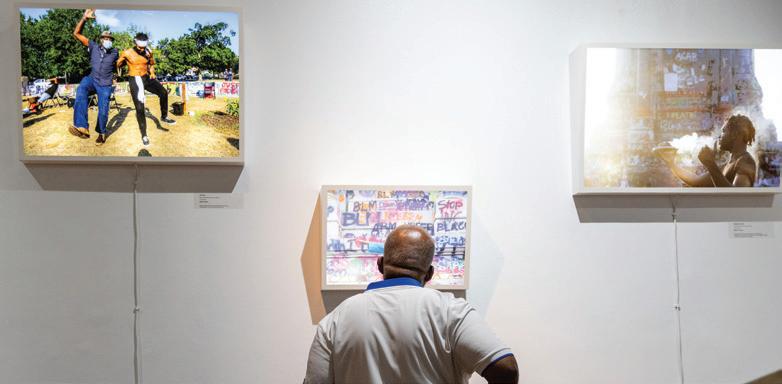



By Jahd Khalil VPM
Nine Virginia Senate Democrats are suing three university rectors over the gubernatorial appointment of board members, they announced Tuesday, opening a new field of contention between Virginia’s Democratcontrolled legislature and Republican executive.

On June 5, the Senate Privileges & Elections Committee voted against confirming eight of Republican Gov. Glenn Youngkin’s appointees to the boards of visitors at George Mason University, the University of Virginia and Virginia Military Institute.
“This lawsuit is not about politics – it’s about preserving the constitutional balance of power that has served Virginia well for centuries,” said Senate President Pro Tempore L. Louise Lucas (D–Portsmouth) in a press release.
The Youngkin administration said that the
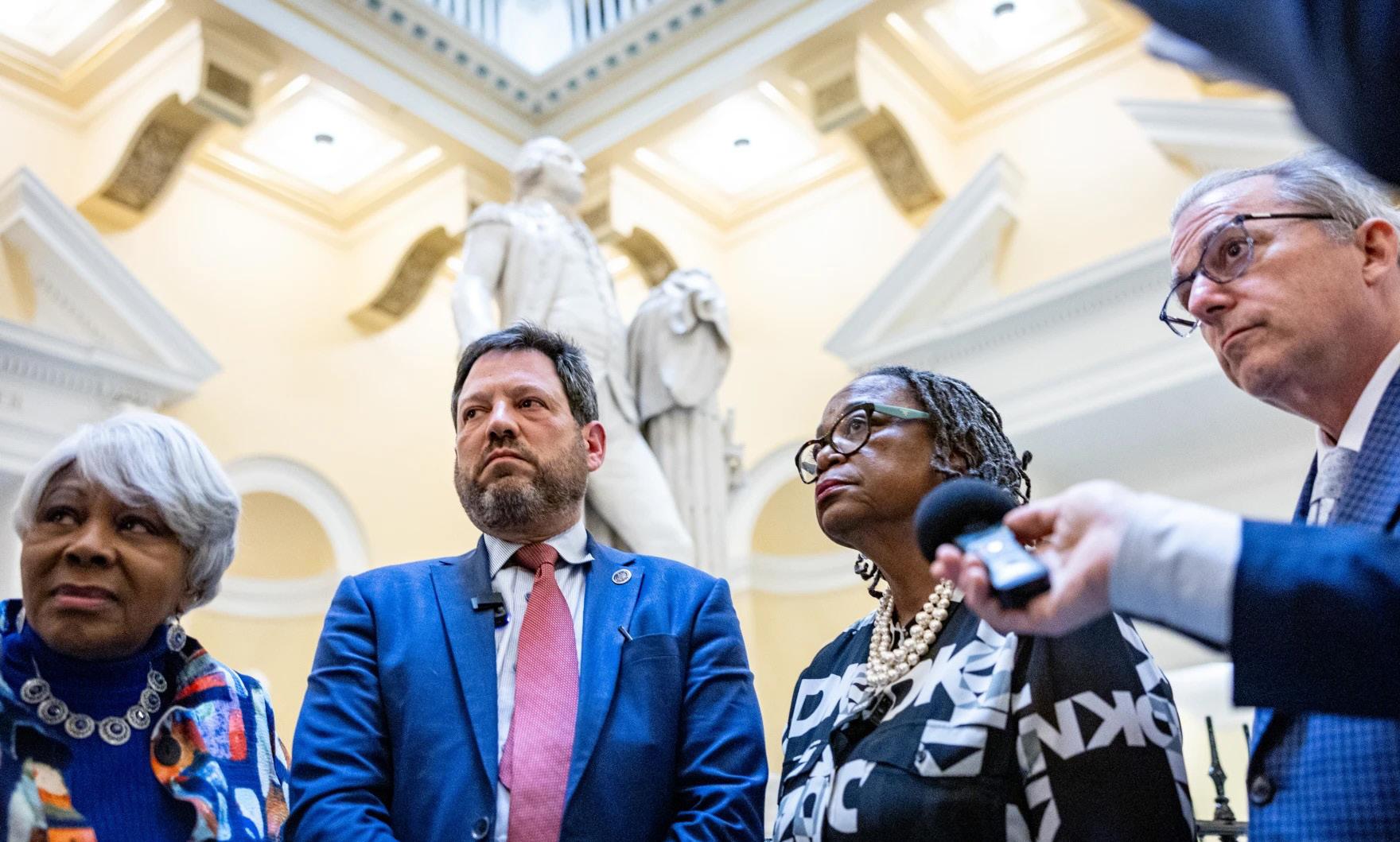
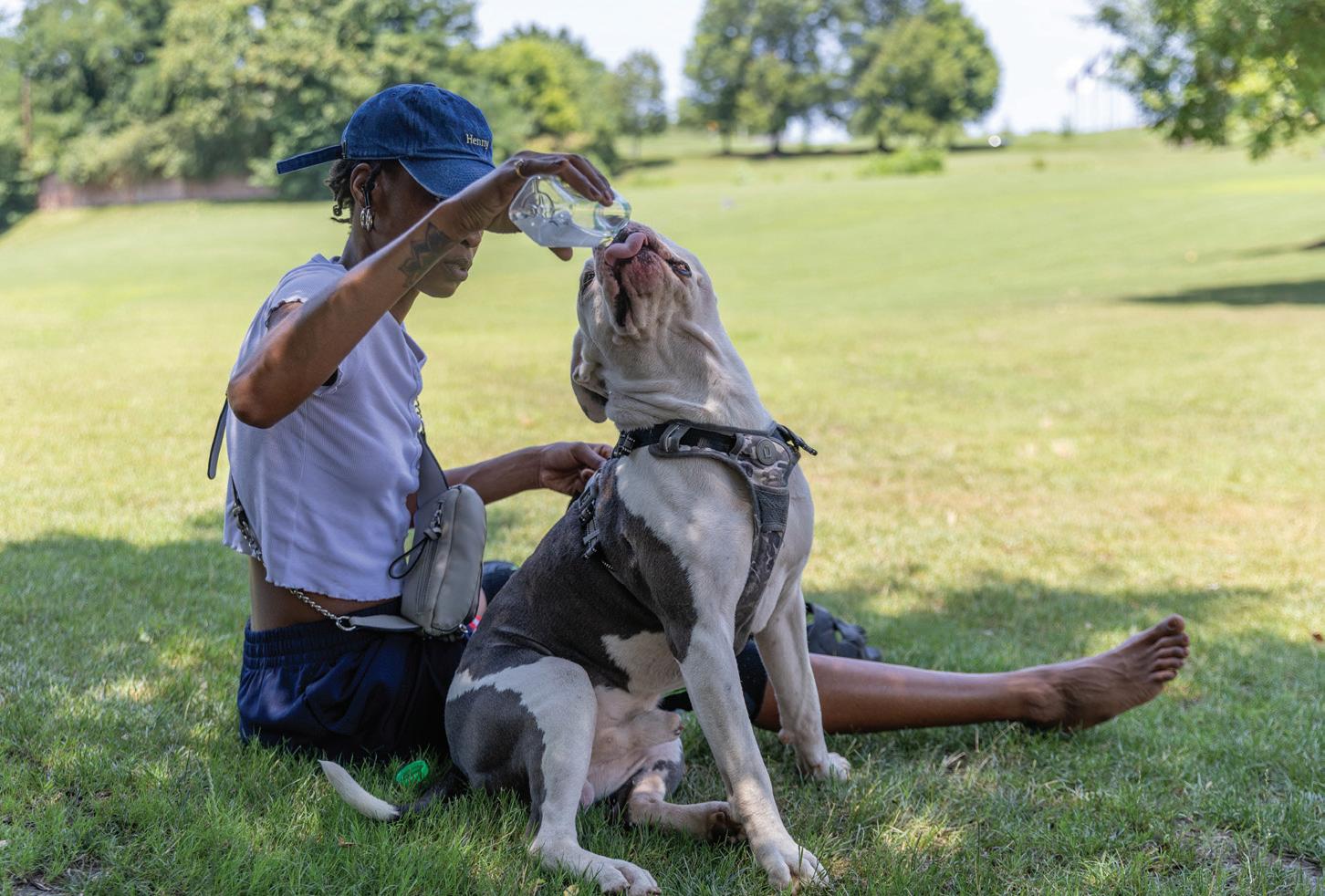
Richmond weathers heat wave as city, community groups respond
An intense heat wave has gripped the Richmond region since temperatures began
late last Friday, with daily highs in the 90s. The heat wave is expected to last through the end of the month, despite forecasts calling for rain in the coming days. In
response, city and community groups have mobilized to address public needs.
Last week, the City of Richmond opened several public cooling facilities that will remain available through Labor Day. These include walk-up cooling centers in neighborhoods and
board members were constitutionally appointed. Attorney General Jason Miyares said the Senate and House of Delegates as a whole would need to reject the nominees.
The lawsuit is the latest institutional push against Youngkin: In May, House Clerk G. Paul Nardo told the governor he would not publish three vetoes of budget issues. In April, House Speaker Don Scott (D–Portsmouth) ruled that two of
groups. Youngkin said that this is a fight against his work to dismantle “illegal discrimination,” which is how the governor has referred to diversity, equity and inclusion programs.
“Democrats clearly want to work to promote that discrimination and the fact that they are challenging my appointees is not only meritless,
By George Copeland Jr.
An ordinance that could require more city leaders to live in the city was delayed by City Council for further consideration during their Monday meeting.
The ordinance, sponsored by six council members, would increase the number of positions requiring city residency from 12 to 43. Roles that would be affected include the chief administrative officer, city attorney, inspector general and several department directors.
Council members backing the ordinance say it would help ensure that highly paid leaders better understand and respond to Richmond’s needs, improve their work for the city and strengthen public trust.
“It is important that people building the systems are part of the systems that they are building and improving,” 4th District Council member Sarah Abubaker said during a committee meeting weeks earlier.
Mayor Danny Avula and his
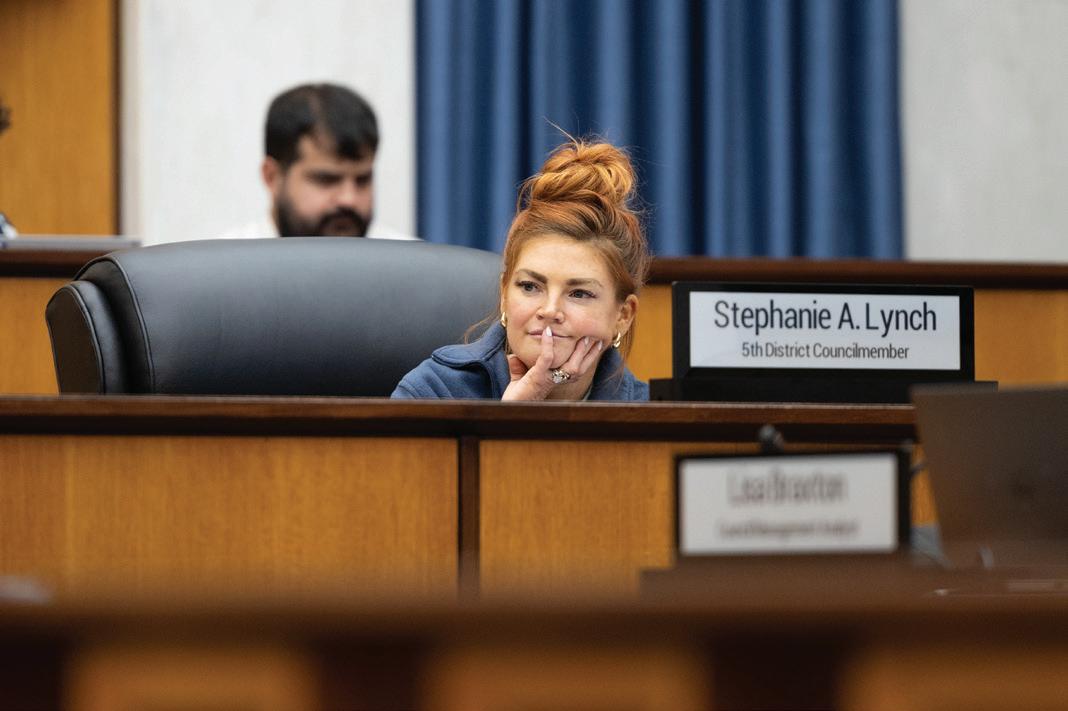
administration have opposed the requirement. A memo from Avula’s office and comments from city officials have raised concerns since the ordinance was introduced, including its potential impact on attracting top talent, competing with other governments, retaining employees, maintaining diversity and avoiding disruptions to agency leadership.
“The proposal offers no evidence that residency requirements improve performance, and it ignores the rationale that led the city to relax such requirements just a few years ago,” the memo states. “The expanded residency mandate would weaken our recruitment pipeline, disrupt operations,
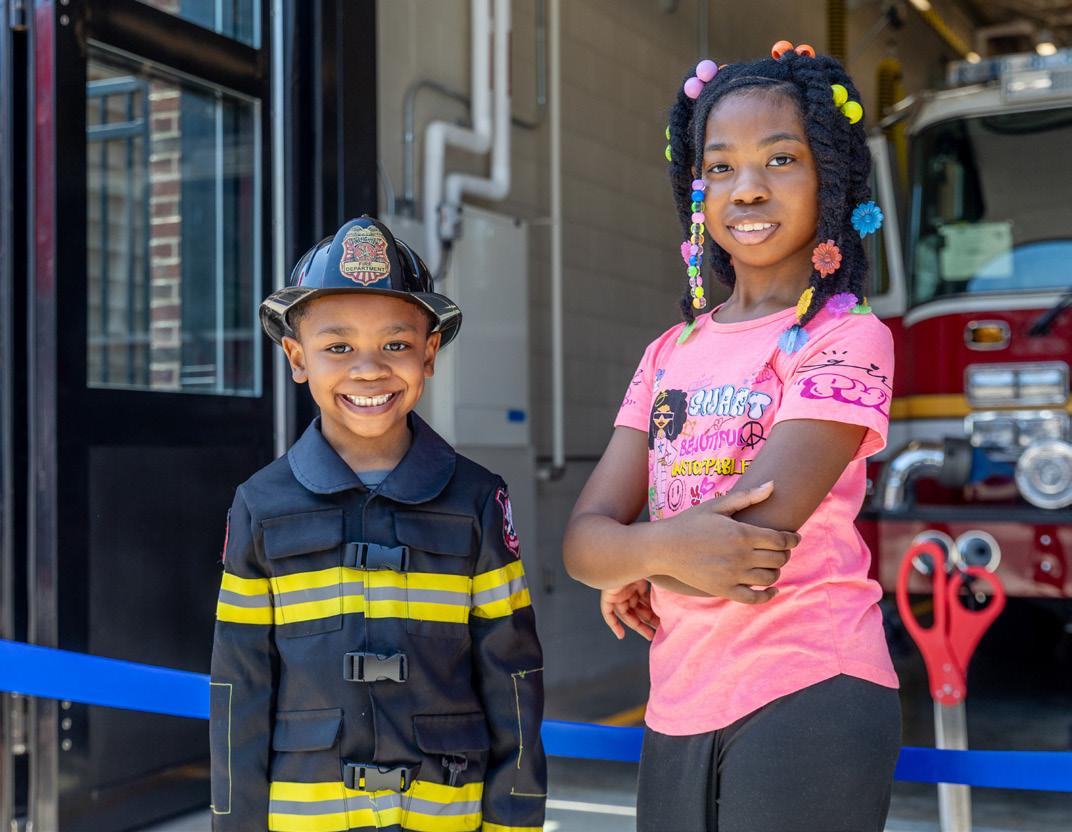
around the Checkers House in Monroe Park on June 18 for an “emergency” protest organized by the Party for Socialism and Liberation Virginia. Speakers from various groups denounced the conflict as well as the impact of the war in Gaza on Palestinians.
The demonstration was the latest organized by PSL VA and other groups as part of a yearslong effort opposing wars in the Middle East, and came days after the Israeli military struck targets in Iran.
“Americans deserve better, for the love of God,” said Charlie Turner of the Virginia Muslim Civic League as he addressed the crowd. “What Americans don’t deserve, they don’t need and they don’t want [...] is another goddamn war.”
Speakers also acknowledged the conflict’s connection not just with the war in Gaza, but also the decades-long war in the Middle East that began in the early 2000s and whose ef-
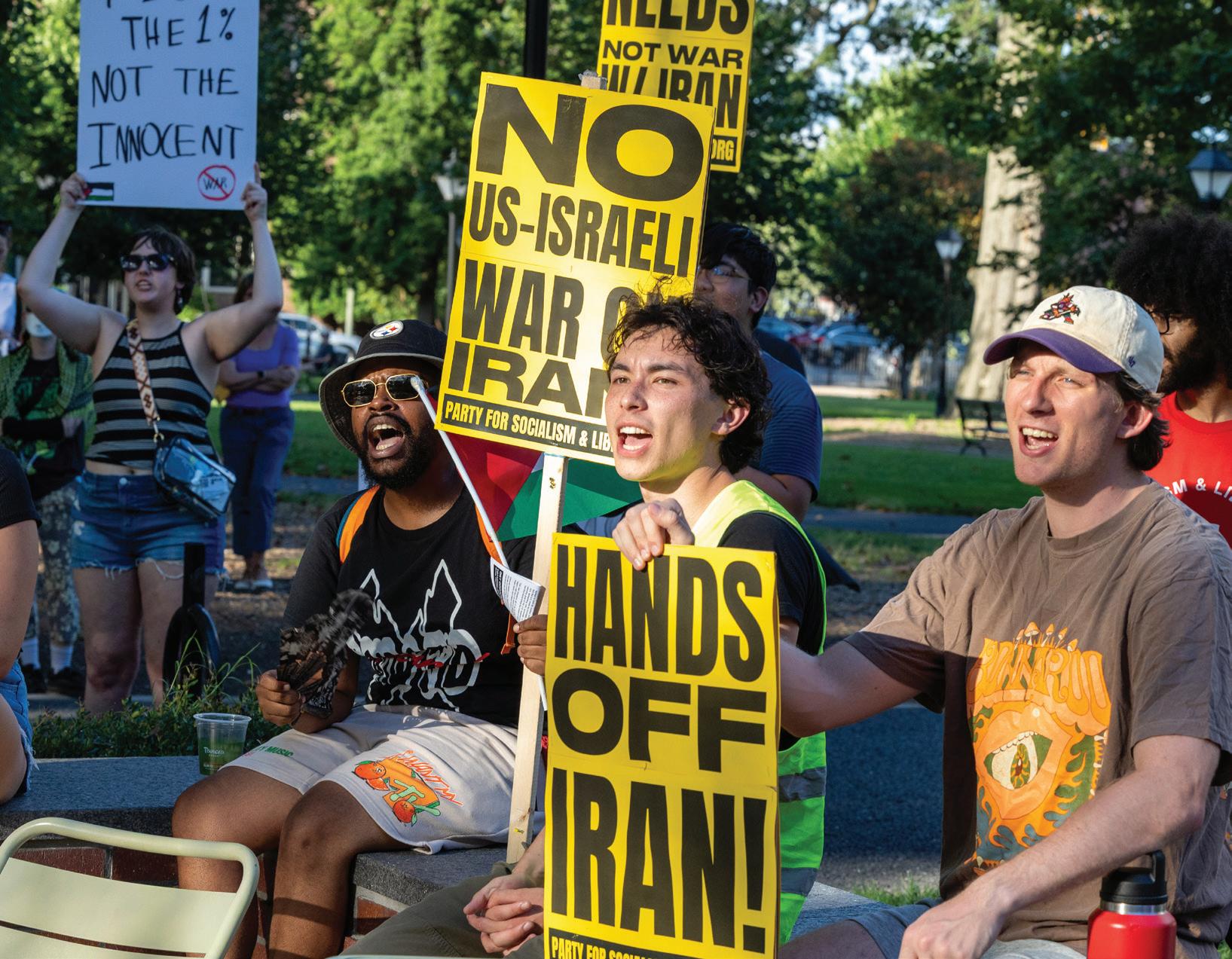
By Charlotte Rene Woods
Could Virginia become part of a growing national movement to elect presidents based on securing the popular vote?
Though America is in its 47th presidency (with many presidents serving multiple terms), just five times has a candidate won the popular vote but lost the election. Although the majority of Americans voted for the losing candidate in those contests, the winners garnered enough Electoral College votes to ascend to the White House.
The most recent example of this came in 2016, when Democrat Hillary Clinton lost the presidency to Republican Donald Trump in 2016, despite winning the popular vote. In 2000, Democrat Al Gore was also defeated despite earning the popular vote, and lost to former President George W. Bush.
National Popular Vote, a bipartisan network of advocates nationwide, is examining whether the outcome of Virginia’s gubernatorial and House of Delegates elections could influence the state to join a growing coalition of states to support the popular vote. The organization has advocated for an interstate compact where participating states agree to honor whichever presidential candidate wins the national popular vote.
Any potential movement on the matter in Virginia would not get started until next year when the 2026 legislative session convenes. However it is a debate, typically led by Democrats, that Virginia’s legislature has explored before.
An effort for Virginia to join the interstate compact cleared the House of Delegates in 2020 before falling in the state Senate. Lawmakers have also presented the measure again in subsequent years, but it has failed to advance.
So far, 17 states and the District of Columbia have agreed to a compact modeled by National Popular Vote. The agreement outlines how states’ electoral colleges would award all of their votes to whichever candidate gets the most votes nationwide. Currently, presidential candidates need to win 270 electoral college votes to win — and each amount of electoral college votes is apportioned by the population size of each state. Enough states
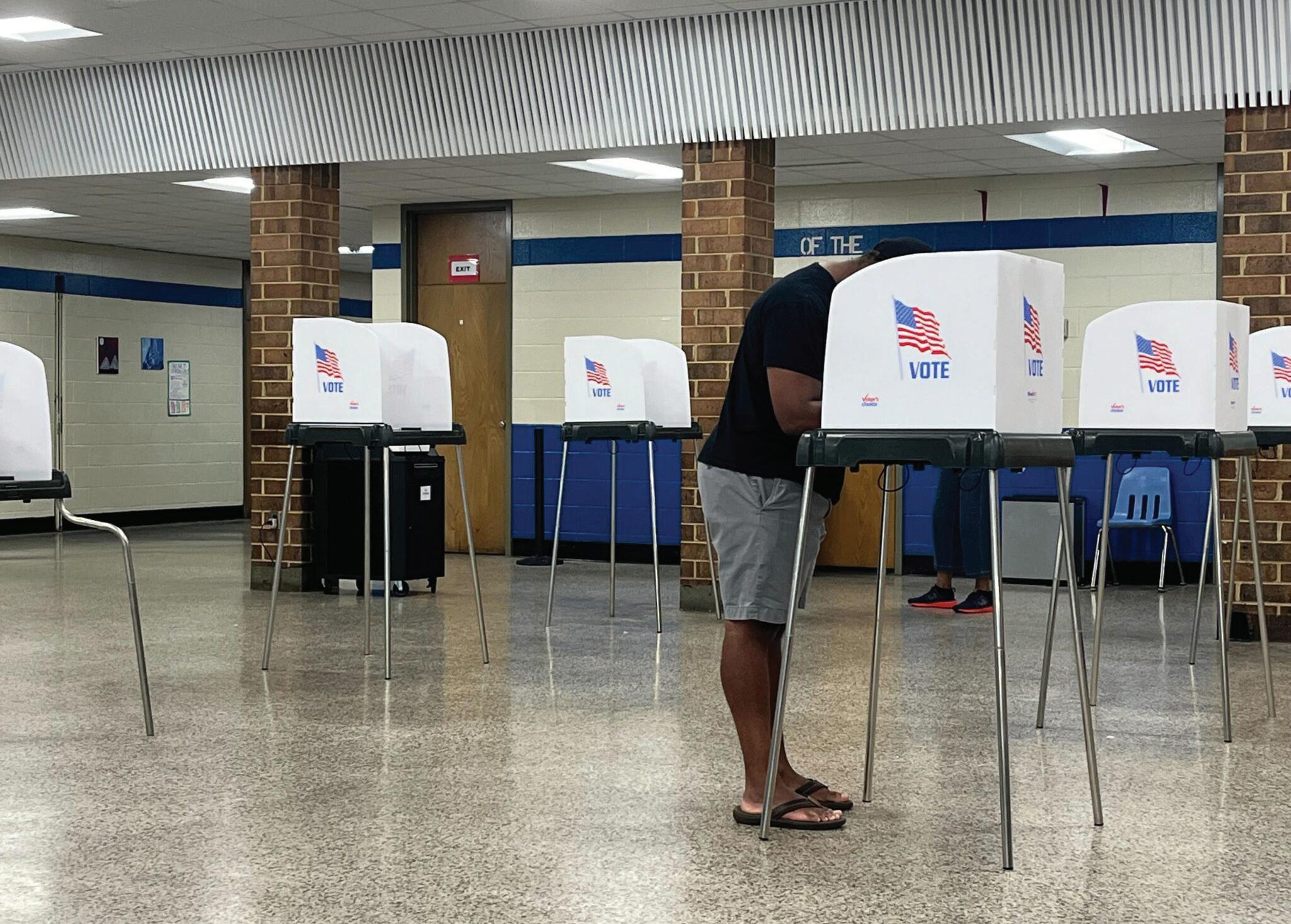
Status of National Popular Vote Bill
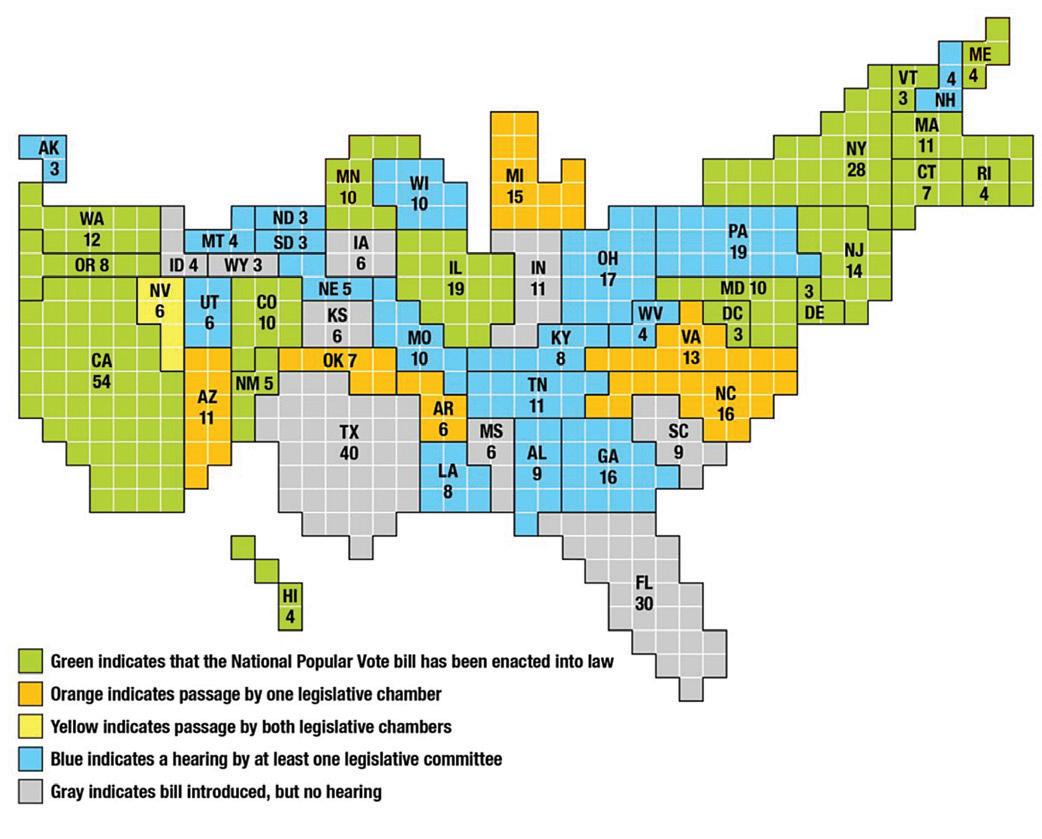
Source: https://www.nationalpopularvote.com/state-status
have signed onto the NPV measure to account for 209 electoral college votes, and should Virginia join, it would add 13 more.
Democratic gubernatorial nominee Abigail Spanberger declined to weigh in on whether or not she would sign a bill to join the compact and staff for Republican nominee Winsome Earle-Sears did not respond by the time of publication.
The popular vote proposal is not without pushback. The electoral college process often receives fresh scrutiny each time a presidential election occurs — and particularly when it benefits a candidate who failed to win the popular vote. But the electoral college is meant to be the counterweight to states with larger populations; each state, large or small, has a different number of electoral college votes allotted to them.
The conservative think tank The Heritage Foundation has defended the electoral college process. “Large cities like New York City and Los Angeles should not get to unilaterally dictate policies that affect more rural states, like North Dakota and Indiana,” the statement said. The Heritage Foundation has been a policy recommendation source for Republicans including Trump for the past several decades.
More than a rural/urban divide, sometimes electoral college debates fall along partisan lines too.
National Popular Vote has bipartisan members, while groups such
as The Heritage Foundation support conservative and Republican candidates and coalitions nationwide. Cities such as New York City and Los Angeles represent predominantly liberal-leaning large localities in large U.S. states, which proponents of the electoral college argue could carry too much weight without it.
But former chairman of Michigan’s Republican Party Saul Anuzis said the idea of reform shouldn’t be partisan. He also serves as a National Popular Vote advisor.
“This isn’t a Republican or Democratic idea — it’s a small-d democratic one,” he said.
Anuzis noted that presidential candidates focus on states that are considered swing states during election cycles, instead of engaging more deeply with voters nationwide.
Though a politically purple state, having oscillated between partisan control of its legislature and governorship, Virginia has not been as frequent a campaign destination for presidential hopefuls as other states have been.
“When the compact kicks in, you’d see candidates campaigning for votes in Richmond, Roanoke and throughout Virginia, not just Pennsylvania, North Carolina, and Arizona,” Anuzis suggested. “That’s how you rebuild trust and make elections feel like they belong to everyone.”
This story originally appeared on VirgniaMercury.com.
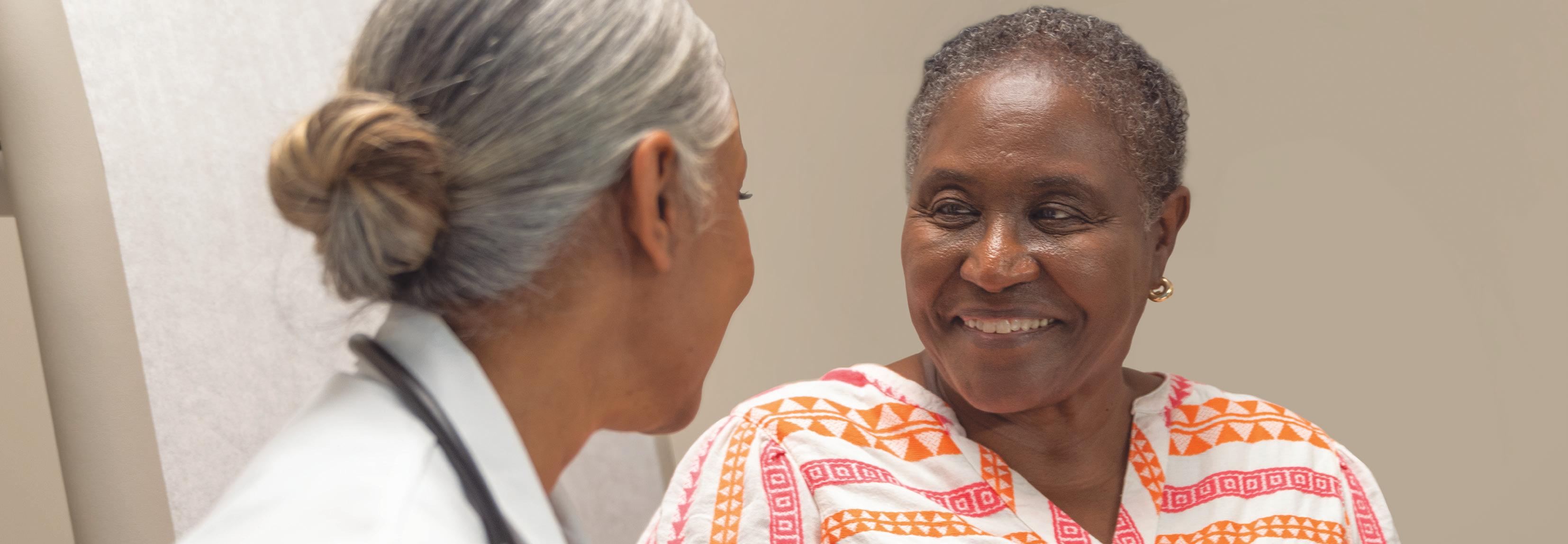

Photos by Julianne Tripp Hillian/Richmond Free Press
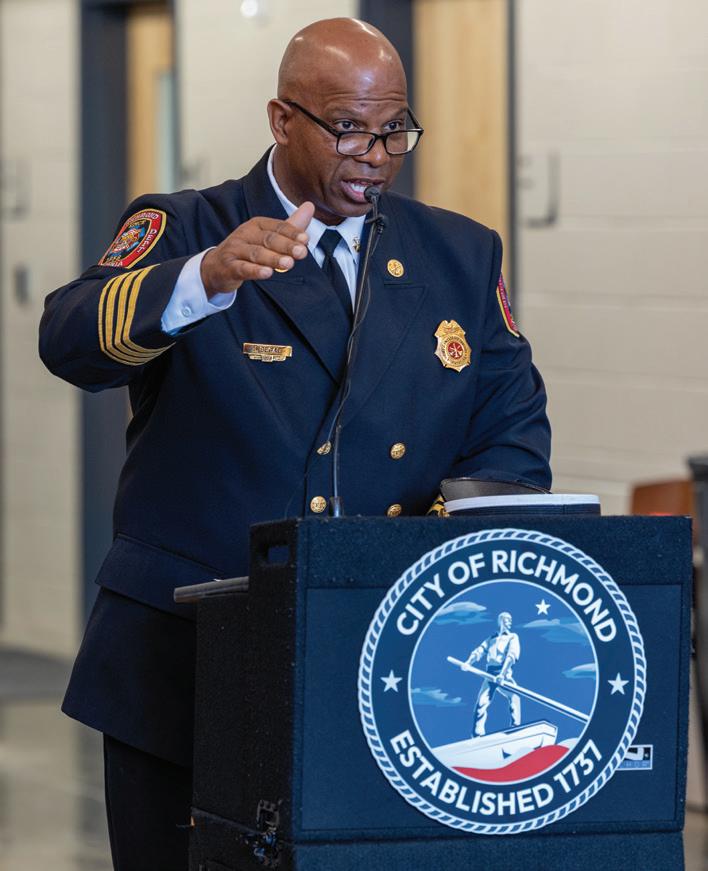
Assistant Fire Chief Jeffrey Segal speaks during the grand opening of the newly constructed Fire Station 12, the Richmond Fire Department’s oldest operating station, on Wednesday, June 25, at 2223 W. Cary St.
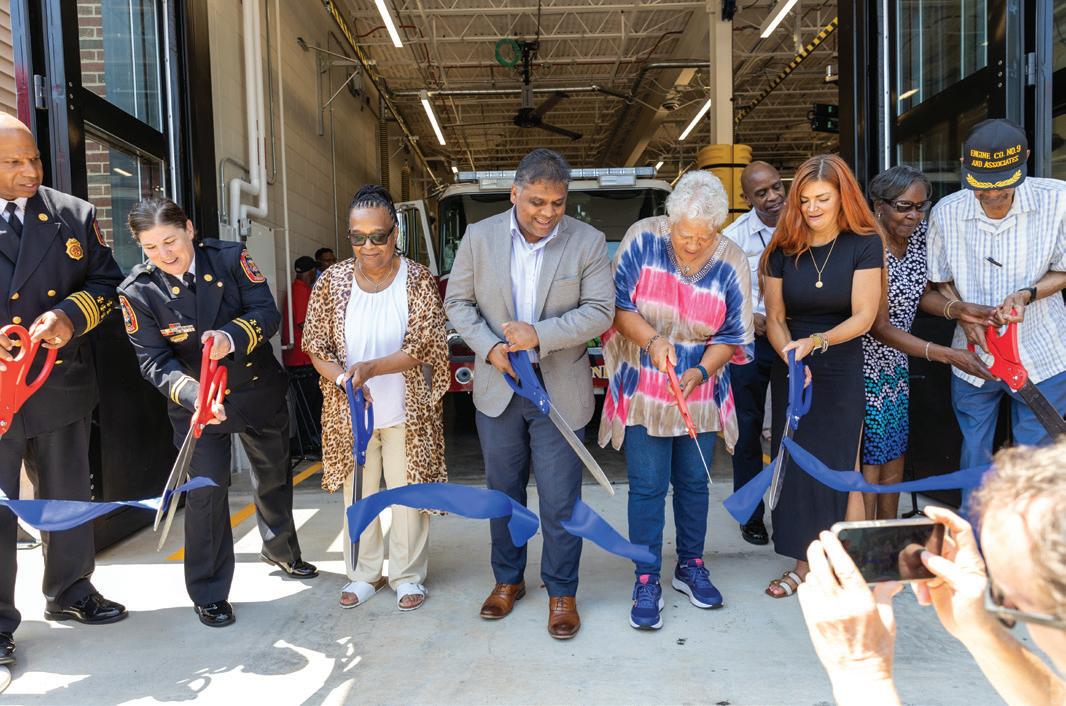
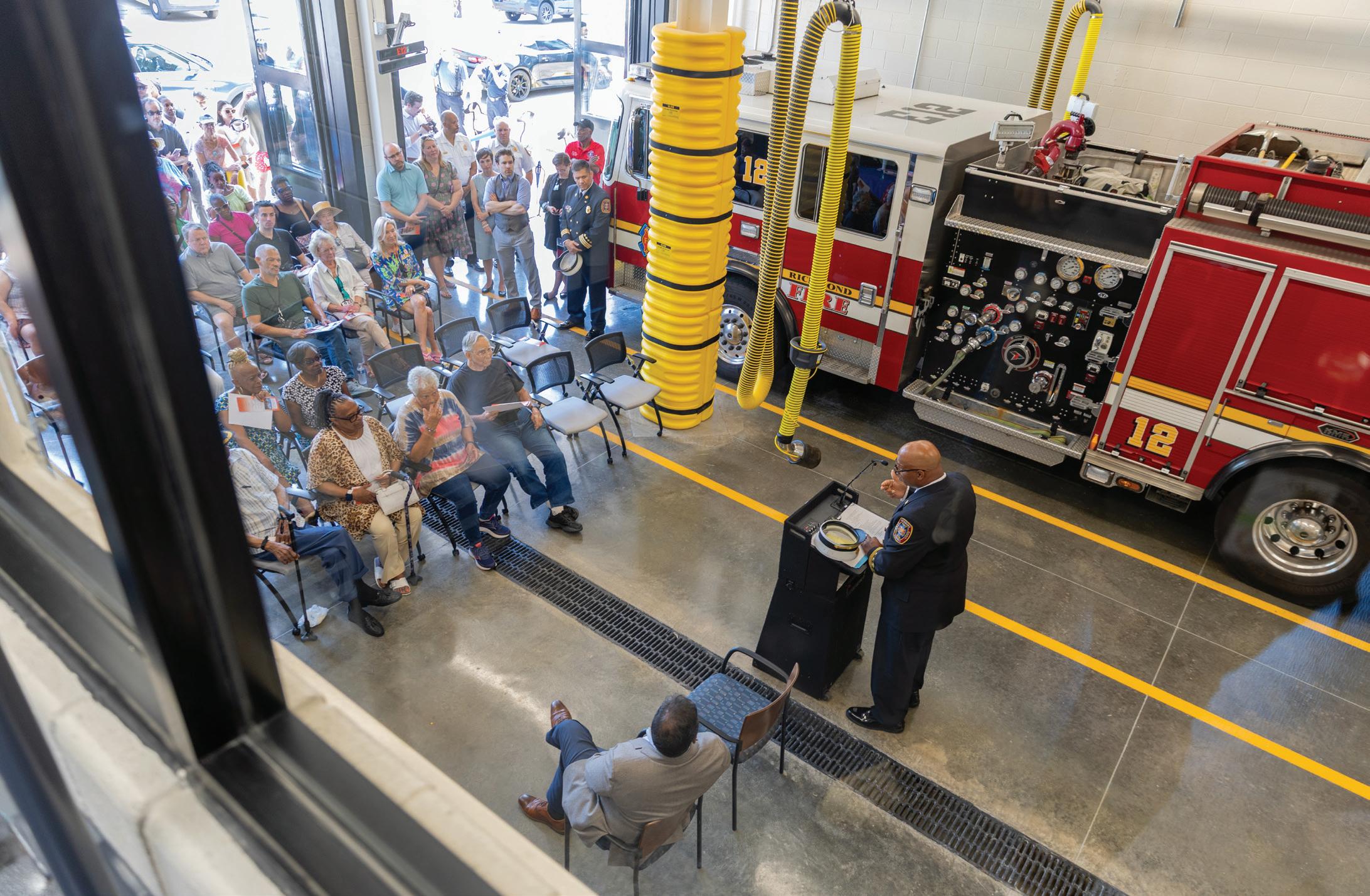
Continued from A1
but it’s a waste of time. It’s a waste of money,” said Youngkin.
Miyares, whose office defends state officials, said in a letter to university rectors that the “authority to refuse a confirmation thus rests with the General Assembly as a whole, not a Senate committee.”
“I have said from the beginning that these are individuals that have been lawfully appointed,” said Miyares, speaking alongside Youngkin, “I think it is very unfortunate to see certain individuals in the state Senate that want to try to politicize the governance of these boards and just somehow [remove] these people. I think they’re wrong in the law.”
The complaint, filed on Tuesday, says Miyares’ stance is “inconsistent with settled practice, and it is not how the Senate
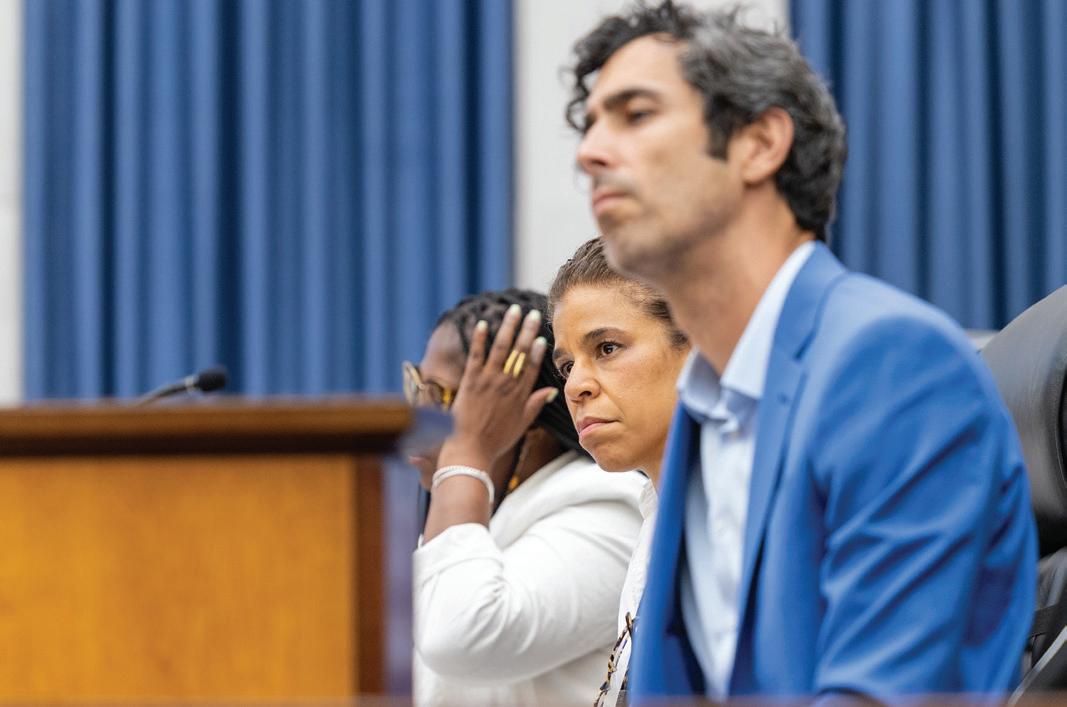
Debate continues as Council delays
Continued from A1
reduce diversity, and ultimately harm the city’s ability to serve its residents effectively.”
The residency proposal is scheduled to be discussed at a special City Council meeting on Monday, July 7.
The Avula administration and City Council were more aligned on other items on the agenda. Both backed a resolution to create a work group that will work with Richmond Public Schools to develop a funding formula for allocating annual revenue for school operating expenses. The work group is expected to deliver a report with recommendations on how to implement the formula by October.
City Council also unanimously approved a resolution supporting more speed cameras at high-risk intersections.
has chosen to conduct its legislative business.”
The university rectors are being sued in their official capacity in Fairfax County Circuit Court, where GMU is located.
In a June 18 letter, Senate Clerk Susan Schaar wrote to two Republican senators, Minority Leader Ryan McDougle (R–Mechanicsville) and state Sen. Mark Obenshain (R–Harrisonburg), that the Privilege and Elections Committee could reconsider the resolution in committee, or the Senate could vote to bring the resolution directly to the Senate floor.
“The Senate has consistently refused to discharge a committee except in purely procedural matters,” Schaar wrote. “In my opinion there are still avenues of opportunity, but as I have done with majorities of both parties, I have followed the direction of leadership after discussions of the issue, both on the floor of the Senate and in committee.”
Schaar’s letter did not say the full Senate would need to reject Youngkin’s amendments.
other select locations, outdoor pools and a shelter provided by the Salvation Army that opens on days when temperatures are expected to reach 92 degrees for consecutive hours.
The city has also extended the shelter’s hours for overnight operations on Tuesday and Wednesday, and added eight daily water distribution points at specific Richmond police precincts and fire stations.
Mutual aid groups such as RVA Community Fridges have also made adjustments in response to the heat wave. According to founder Taylor Scott, the group has worked to ensure that a variety of water and hydrating goods such as ice pops, watermelon and cucumbers are available in their 15 fridges across the city. The group has also added additional shoppers for daily item drops to fridges.
“Our volunteers are very hard at work all day, and have been for the past weekend in
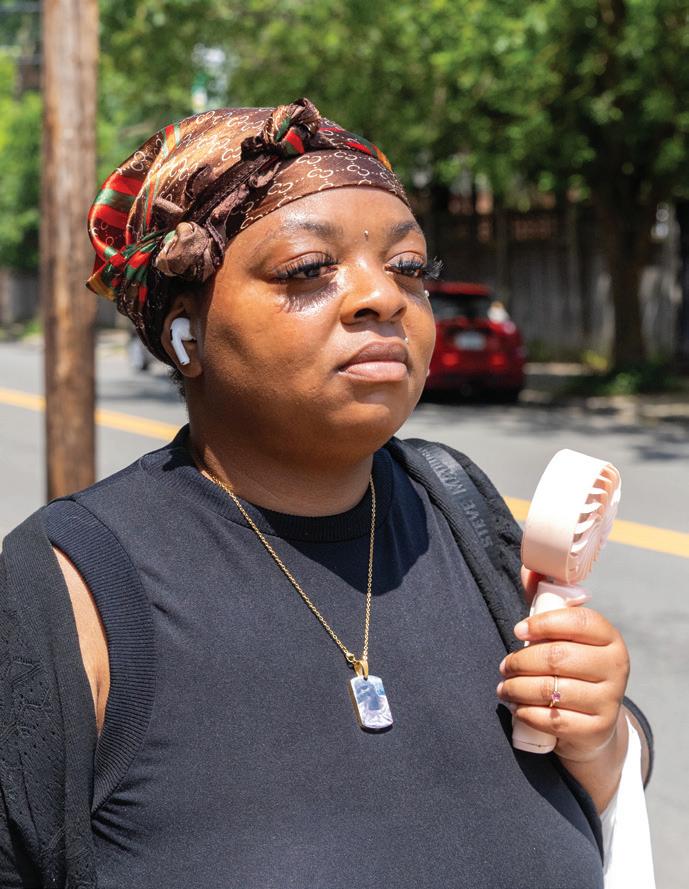
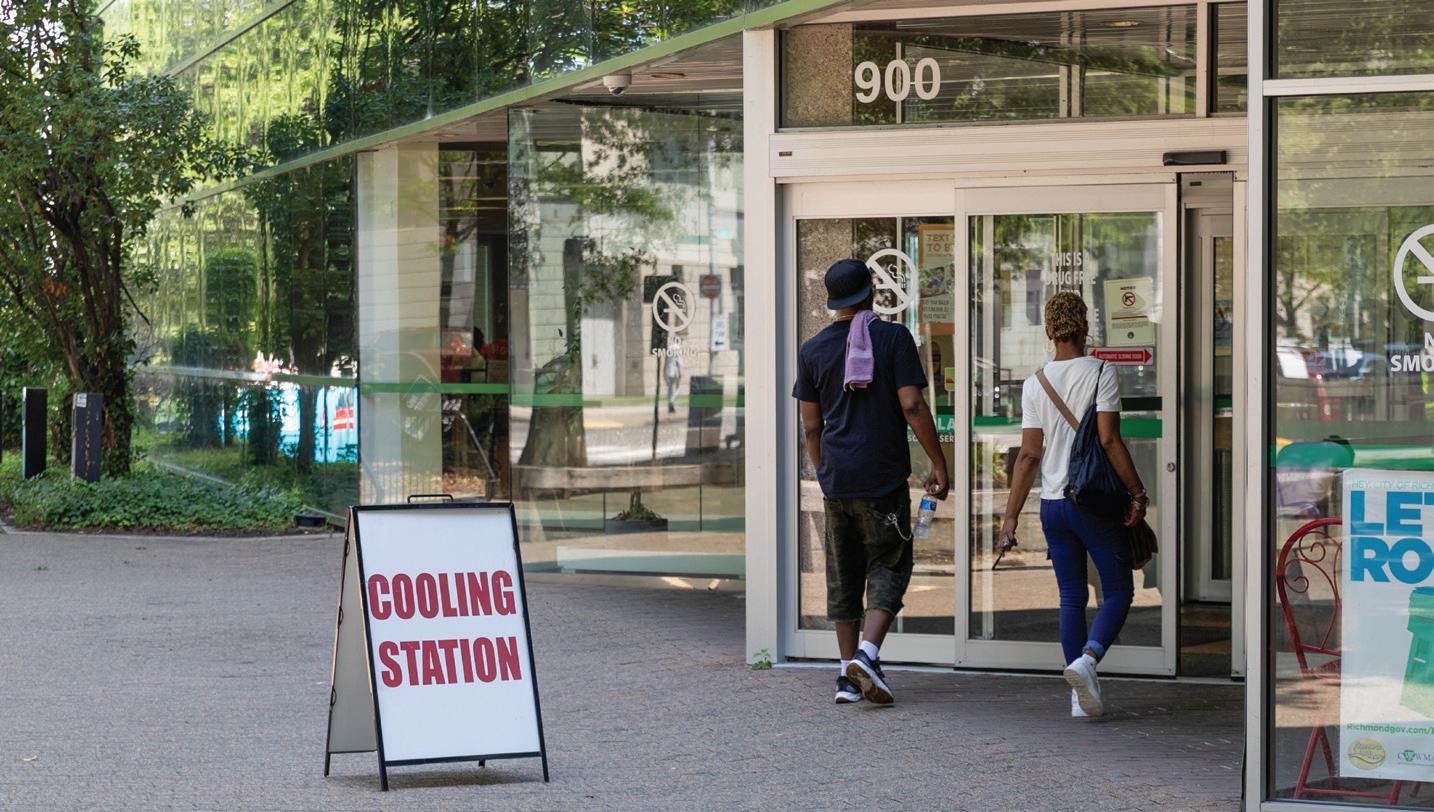
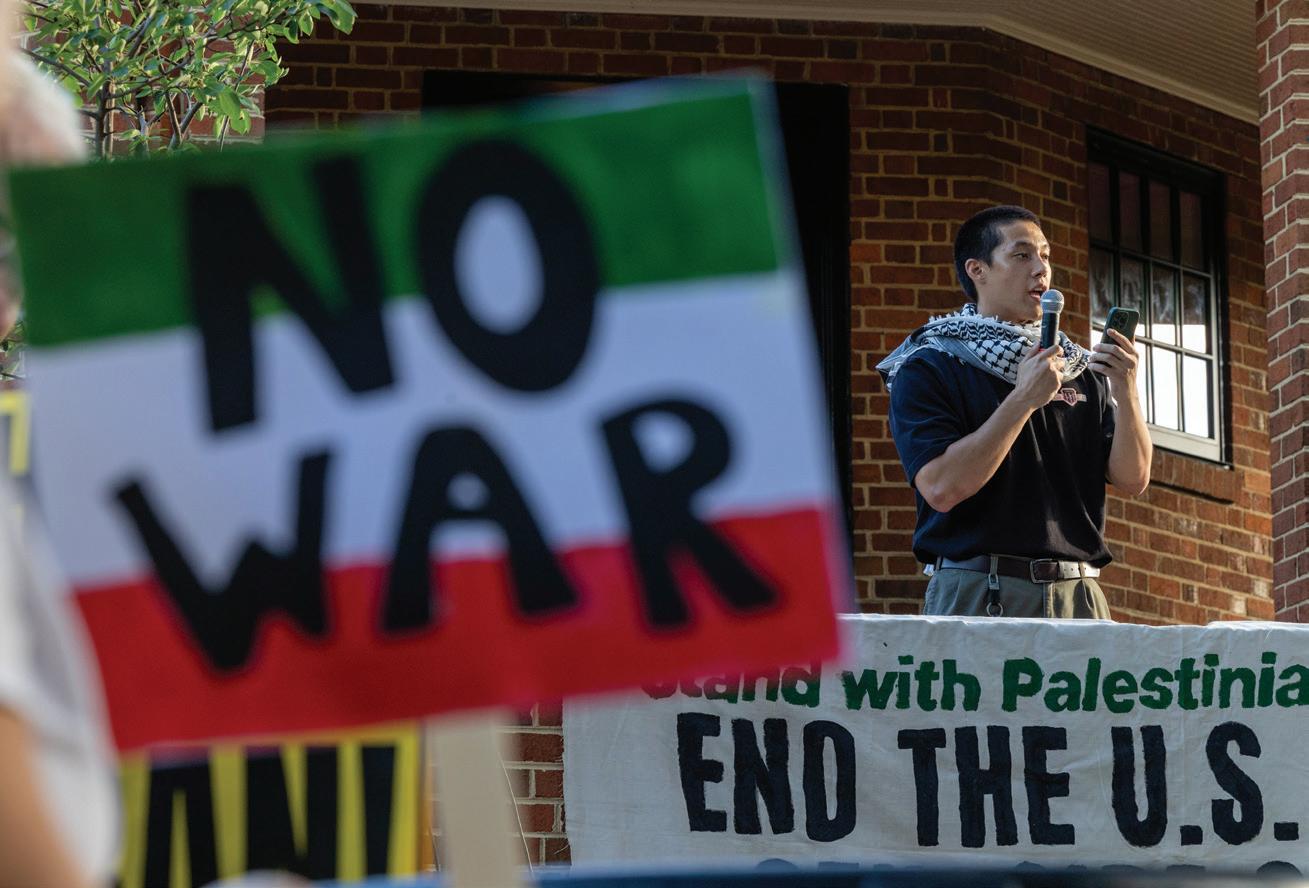
preparation for the rising temps this week and stocking the RVA Community Fridges,” Scott said. “We have seen an increasing need of liquids to keep the community hydrated as the heat has been rising this week.”
Scott said the group’s community cook day is still scheduled for Friday, June 27, from 1 to 4 p.m. at Matchbox Mutual Aid in Richmond’s North Side. Community members are encouraged to volunteer or donate to RVA Community Fridges to help meet public needs during the heat wave.
For more information, visit rvacommunityfridges.com.
A Cool the City Community Forum organized by Virginia Interfaith Power and Light (VAIPL), Southside ReLeaf and other groups provided a way for residents to suggest climate mitigation strategies the city should consider. The forum was held on Monday at Studio Two Three in Richmond.
About 30 people attended, according to VAIPL Executive Director Faith Harris, with infrastructure investment emerging as a key focus — driven in part by recent water issues in the city — followed by interest in plant-based strategies. Harris said VAIPL is currently sharing tips and information to help residents stay cool while working on long-term plans for tree planting across Richmond.
In addition to these efforts, on Wednesday, the city released the Richmond Cool Kit, an urban heat mitigation guide that outlines strategies to reduce surface temperatures and protect public health. Officials say the plan addresses historic disparities in heat exposure and aims to lower energy costs, improve health outcomes and increase climate resilience across neighborhoods. The toolkit is available at rvagreen2050.com/richmond-cool-kit.
fects still linger in the region and in America.
They also challenged the officials’ justification for the conflict and reminded those present of the costs of a full-scale war, including death and destruction, financial burdens, war profiteering and increased surveillance and militarization.
“It is now upon us to fix the problem, to wrestle back control and make the system work for us, and not for the billionaires that allowed, no, pushed for this to happen,” 50501 Virginia organizer Antoni Szachowicz said. “It
is on us to rise up and let them know that we the people do not want this, that we will not stand for it.”
Speakers and organizers noted that the gathering was just the latest one pushing back against U.S.-backed military conflicts in the region, and part of a larger effort criticizing the federal government that has grown more in 2025.
“We need health care. We need jobs. We need affordable housing,” PSL VA Member David Robbins said. “We’re here to demand for that to change, not just for us here, but for people around the world so that we can build a more peaceful, just world.”
By Ben Finley The Associated Press
The rebuilding of one of the nation’s oldest Black churches, whose congregants first gathered outdoors in secret before constructing a wooden meetinghouse in Virginia, started Thursday, June 19, with a ceremonial groundbreaking.
The First Baptist Church of Williamsburg officially established itself in 1776, although parishioners met before then in fields and under trees in defiance of laws that prevented African Americans from congregating. Free and enslaved members erected the original church house around 1805, laying the foundation with recycled bricks.
Reconstructing the 16-foot by 32-foot (5-meter by 10-meter) building will help demonstrate that “Black history is American history,” First Baptist Pastor Reginald F. Davis told The Associated Press before the Juneteenth groundbreaking.
“Oral history is one thing, but to have an image to go along with the oral history makes a greater impact on the psyche of oppressed people,” said Davis, who leads the current 215-member congregation in a 20th-century church that is less than a mile from the original site. “Black Americans have been part of this nation’s history before and since the Declaration of Independence.”
The original building was destroyed by a tornado in 1834.
First Baptist’s second structure, built in 1856, stood there for a century. But the Colonial Williamsburg Foundation, a living history museum, bought the property in 1956 and turned the space into a parking lot.
Colonial Williamsburg had covered the costs of building First Baptist’s current church house. But for decades it failed to tell
the church’s pioneering history and the stories of other colonial Black Americans.
In recent years, the museum has placed a growing emphasis on telling a more complete story about the nation’s founding. Colonial Williamsburg’s rebuilding of the church is an opportunity to tell Black history and resurrect the stories of those who originally built it.
“Today is more than a groundbreaking. This is a homecoming,”
The Colonial Williamsburg Foundation chief of staff Dana Tomlin said on Thursday, June 19. “In lifting up this space again, we’re not just reconstructing a building. We’re restoring a dignity to a community’s voice, honoring a legacy that has long deserved recognition.”
Telling Virginia’s untold story
Rebuilding First Baptist’s original meetinghouse will fill an important historical gap, while bolstering the museum’s depic-
The Rev. James Ingram is an interpreter who has for 27 years portrayed Gowan Pamphlet, First Baptist’s pastor when the original church structure was built. Pamphlet was an enslaved tavern worker who followed his calling to preach, sermonizing equality, despite the laws that prohibited large gatherings of African Americans out of fear of slave uprisings.
“He is a precursor to someone like Frederick Douglass, who would be the precursor to someone like Martin Luther King Jr.,” Ingram said. “Gowan Pamphlet was leading the charge.”
The museum’s archaeologists uncovered the original church’s foundation in 2021, prompting Pastor Davis to say then that it was “a rediscovery of the humanity of a people.”
“This helps to erase the historical and social amnesia that has afflicted this country for so many years,” he said.
The archaeologists also lo-

tion of Virginia’s 18th century capital through interpreters and restored buildings. More than half of the 2,000 people who lived in Williamsburg at the time were Black, many of them enslaved.
cated 62 graves, while experts examined three sets of remains and linked them to the congregation.
Scientists at William & Mary’s Institute for Historical Biology

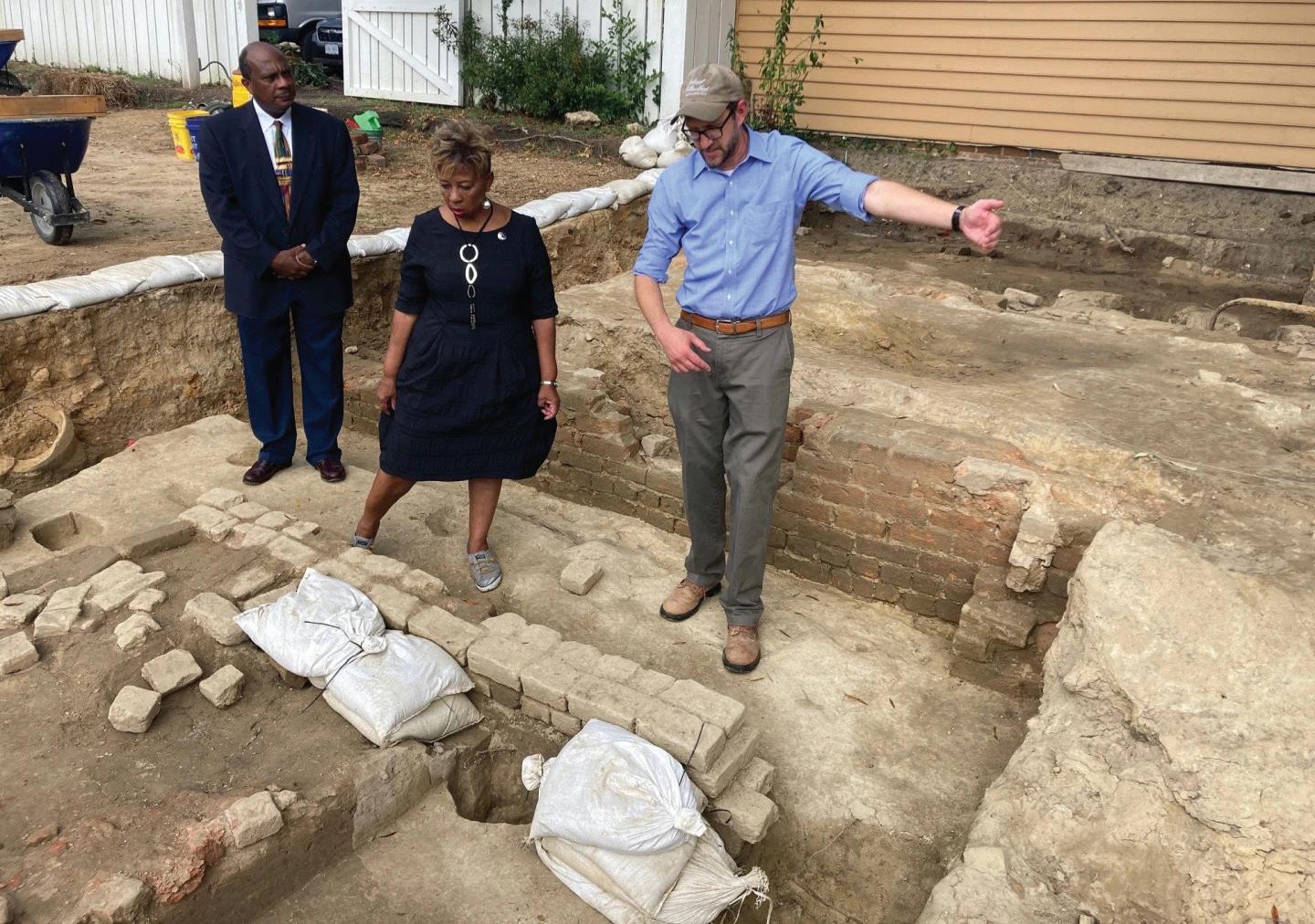
said the teeth of a Black male in his teens indicated some kind of stress, such as malnutrition or disease.
“It either represents the conditions of an enslaved childhood or far less likely — but possibly — conditions for a free African American in childhood,” Michael Blakey, the institute’s director, said in 2023.
‘It was a marvel’
In the early 1800s, the congregation acquired the property for the original church from a local white merchant. The land was low, soft and often soggy — hardly ideal for building, said Jack Gary, Colonial Williamsburg’s executive director of archaeology.
But the church’s congregants, many of whom were skilled tradespeople, made it work by flipping bricks on their side and making other adjustments to lay a level foundation.
“It was a marvel that they were able to build a structure there, but also that the structure persists and even grows bigger,” Gary said, adding that the church was later expanded.
Based on their excavation, archaeologists surmise there was no heat source, such as a fireplace,
no glass in the windows and no plaster finish, Gary said.
About 50 people could have sat comfortably inside, possibly 100 if they were standing. The congregation numbered about 500, which included people on surrounding plantations. Services likely occurred outside the church as well.
White planters and business owners were often aware of the large gatherings, which technically were banned, while there’s documentary evidence of some people getting caught, Gary said.
Following Nat Turner’s rebellion in 1831, which killed more than 50 white people in Virginia’s Southampton County, the congregation was led by white pastors, though it was Black preachers doing the work, Gary said. The tornado destroyed the structure a few years later.
Deep Roots
The museum is rebuilding the 1805 meetinghouse at its original site and will use common wood species from the time: pine, poplar and oak, said Matthew Webster, the museum’s executive director of architectural preservation and research. Construction is expected to finish next year.
The windows will have shutters but no glass, Webster said, while a concrete beam will support the new church directly over its original foundation, preserving the bricks.
“When we build the earliest part of the church, we will put bricks on their sides and will lay them in that strange way because that tells the story of those individuals struggling to quickly get their church up,” Webster said. “And then when we build the addition, it will be this formal foundation that really shows the establishment of the church.”
The rebuilt church will stir the memories of those who built it with little more than faith, said Carlon Lassiter, pastor at Saint John Baptist Church and a descendant of First Baptist Church members.
“They will never be able to expunge us from the landscape,” said Canaday, who is also the museum’s African American community engagement manager. “It doesn’t matter if you take out the building. It doesn’t matter if you ban books. You will never be able to pull that root up because that root is so deep.”
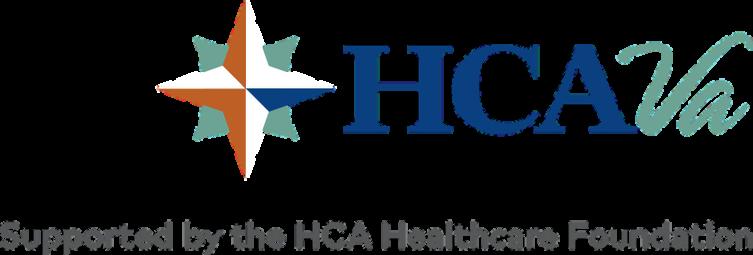


There’s a problem with several of Gov. Glenn Youngkin’s appointees to college boards. Their selection was voted down by the General Assembly, but they’ve refused to leave their positions. This is different from student protesters who take over buildings — those students know they’re breaking rules to make a point. But these board members think they should still be there, even after being told otherwise.
Senate Democrats have now sued the rectors of three universities for their refusal to comply with Virginia law. What or who could compel these school leaders to act this way? Look no further than our governor and Attorney General Jason Miyares and Secretary of Education Aimee Guidera, who are also targeted in the suit.
A Democratic senator involved in the lawsuit explained the decision plainly: “This lawsuit is not about politics – it’s about preserving the constitutional balance of power that has served Virginia well for centuries,” said Sen. Louise Lucas. “When university rectors ignore our constitutional role at the behest of the governor and attorney general, they undermine the very foundation of our democratic institutions.”
We can see that these university leaders find themselves in a tight spot, with one branch of state government saying one thing and another branch saying something different. We’d advise them to choose the branch which has the law on its side.
When you defy the democratic process to hang on to power, you’re not governing — you’re squatting.
If a recent lawsuit and years of rumors and innuendo are to be believed, filmmaker and billionaire Tyler Perry may not be in contention for any “boss of the year,” awards. An actor who worked for Perry, after being “discovered” by the director at an event at his Atlanta studio, says he was subjected to sexual harassment, sexual assault and threats while working for the 55-year-old.
Derek Dixon played the character of Dale on Tyler Perry’s BET series “The Oval,” a role he began in 2021. His lawsuit, filed on June 13, in Los Angeles, asks for $260 million in damages. The suit follows an Equal Employment Opportunity Commission (EEOC) complaint he filed in 2024, after which the producers of the show took no action, according to Dixon.
The story Dixon tells reveals a side of Tyler Perry the public rarely sees. Most know him as an actor, director and philanthropist — a confident, assured man grounded in faith, morality and personal integrity. For many African American writers of a certain generation, relatives within Perry’s core audience often encouraged them to “get a job with Madea.” (Glad I never made that trip.) Perry, who often performs in drag, became an icon in the African American church community, where questions about his private life were largely set aside in favor of focusing on the moral messages in his films and stage plays.
The Tyler Perry described in the lawsuit — the one who allegedly propositioned Dixon repeatedly — is a very different character. Text messages purportedly sent from the studio head’s phone show an insecure man desperate for attention and willing to use his power and influence to get it. Dixon, who claims he attempted to ignore the advances, says he was threatened with losing his position on the show if he didn’t give in. The descriptions of the alleged assaults aren’t fit for this space and, if true, they speak to a disturbing abuse of power that starkly contrasts with the public image Perry has cultivated.
This isn’t the first actor to allude to Perry’s alleged bad behavior. Another performer posted a video last year about his ordeal working for someone who fit Perry’s profile, garnering thousands of views and the support of some of his fellow actors. A few months later, the actor, Christian Keyes, decided to keep quiet and deleted the video.
Far too many workplaces — Hollywood included — can become houses of pain for the people who keep them running. This case matters beyond showbiz gossip because it reflects power dynamics that exist in boardrooms, newsrooms and offices everywhere.
We should hold the powerful to the same standards we hold ourselves, and never mistake a well-lit stage for a healthy workplace behind the scenes. If you’re navigating a toxic environment, remember this: Your dignity matters more than any title or check. You deserve to be safe, seen and respected. And you’re not alone.

Douglas Turner Ward (19302021) wrote a searing play, “Days of Absence,” that imagined life in a small Southern town where all the Black residents disappeared overnight. Predictably, the white townspeople could not walk and chew gum, neither at one time nor at the same time. They couldn’t boil water, feed their children or even care for themselves. The fictional town teeters on collapse without its Black labor backbone. The play ends when, the next day, one of the missing Black residents reappears and claims to know nothing about the disappearance.

“Days of Absence” won a Drama Desk Award in 1965 and a Tony Award in 1966. It caught the attention of the Ford Foundation, which awarded Ward a grant he used to establish the Negro Ensemble Company. This sardonic, unresolved play is a metaphor for people who remain invisible while serving our food, cleaning our homes, driving buses and trains, and making life comfortable for those too busy or self-important to notice.
Where is the 21st-century Douglas Turner Ward, the playwright or author willing to write about the days of absence that immigrant workers might stage to remind us of their essential place in our economy? In agriculture and hospitality, in science and medicine, and in so many other fields, we will be the losers if the 47th president’s plan to deport
Julianne Malveaux
3,000 people a day succeeds. If Immigration and Customs Enforcement meets that quota daily, more than a million people a year could be removed. They are housekeepers and construction workers, childcare providers and health care aides. About one in five U.S. workers is foreign born, and about a quarter of those are likely undocumented. Many have lived here for years, building lives for themselves and their families. Few receive public assistance; most work under the radar, paying taxes and getting no benefits. What would we do without immigrants, documented or not?
Which construction sites would stall? Which hotels would struggle with labor shortages when housekeepers and landscapers are gone? Which elders would
lose caregivers? Which children would lose parents and perhaps end up in foster care? How will mass deportations change the way we live, and does it matter?
Yes, the rule of law must be respected, and those here illegally have neglected to resolve their status. But most are not the “dangerous criminals” the president rants about. Since launching his first campaign in 2015, he has used immigrants as a prop, calling Mexicans rapists and criminals and smearing Haitian immigrants with vile lies. Now, he questions President Biden’s mental fitness — but who is checking his?
Deporting millions is an inflationary move by someone who claims he can tame inflation. Who will replace the workers we deport, and will they accept the same wages? Appeasing his base, the president has said farm and hospitality workers wouldn’t be deported — only to reverse himself days later, posting, “Our federal government will continue to focus on the remigration of ‘aliens’ (quotes mine) to the places from where they came, and preventing the admission of anyone who undermines the domestic tranquility of the United States.”
Who really disturbs domestic tranquility with harsh,
Did you miss a national holiday, Mr. President?
Juneteenth came and went Thursday, but curiously something seemed to be missing from the annual celebration: a cordial salute from the president of the United States.
Well, sure, you might say at this point in our political history: After all, he’s Don ald Trump. What do we expect? The only times when the mas ter of Mar-aLago brings up a delicate topic like America’s troubled racial history is when he can use it to bludgeon Democrats and other liberals.
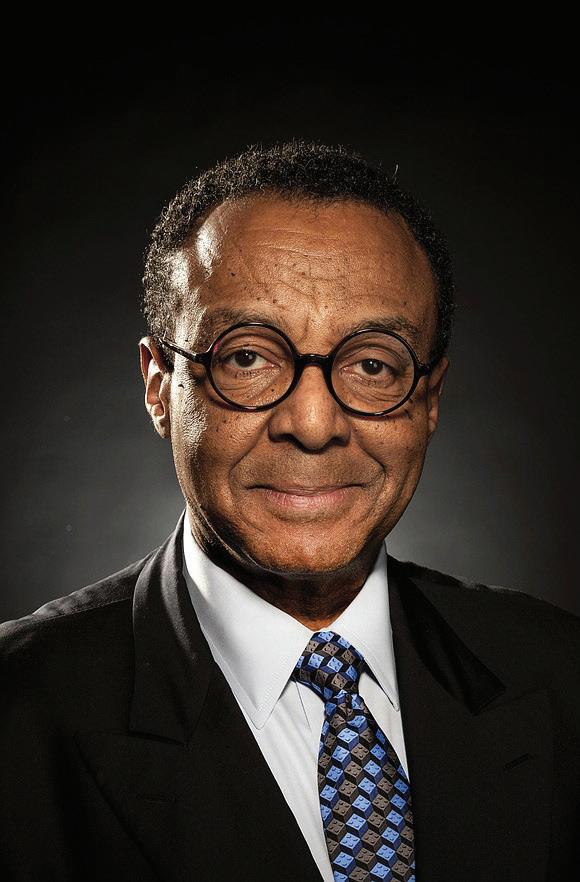
But it wasn’t long ago that Trump regularly made a point to mark Juneteenth, the holiday that honors the freeing of enslaved Americans by his Republican predecessor Abraham Lincoln.
As The New York Times reported, Trump invoked Juneteenth in each of his first four years as president, before it was a federal holiday.
It commemorates June 19, 1865, the day Union soldiers brought the news of freedom to enslaved Black people in Texas, letting them know they had been legally freed by Lincoln’s signing of the Emancipation Proclamation two years earlier. Better late than never. Much better.
When asked on Thursday about Trump’s intentions to mark the holiday in the traditional presidential manner, White House press secretary Karoline Leavitt answered evasively, “I’m not tracking his signature on a proclamation today.”
That was strange, because by Leavitt’s own admission, Trump
had in the past week issued proclamations commemorating Father’s Day, Flag Day and National Flag Week, and the 250th anniversary of the Battle of Bunker Hill — none of which are among the 11 annual federal holidays.
Why does Trump feel differently about the holiday now?
Without mentioning Juneteenth by name, Trump bellyached on Truth Social: “Too many non-working holidays in America. It is costing our Country $BILLIONS OF DOLLARS to keep all of these businesses closed. The workers don’t want it either!”
Ah, yes, workers and their well-known aversion to paid holidays.
He continued: “Soon we’ll end up having a holiday for every once working day of the year. It must change if we are going to, MAKE AMERICA GREAT AGAIN!”
That sounds ominous. Is Trump planning to claw back paid holidays from hardworking government employees?
It occurred to me, as a descendant of freed enslaved people, that perhaps Trump simply wants to downgrade our day of jubilee. True, back in his first term, Trump lavishly boasted: “I made Juneteenth very famous. It’s actually an important event, it’s an important time. But nobody had heard of it. Very few people have heard of it.” (That would be news to the millions of “nobodies” who spent years eating soul food and pounds of traditional “red cake” to celebrate the day.)
Trump even spoke favorably about Juneteenth as a federal
holiday, but he didn’t get around to making it official before he left office. It was then-President Joe Biden who completed that task in 2021.
Which may explain Trump’s newfound hostility to the holiday. Whereas Biden sought to mend the nation’s racial divisions after the George Floyd protests, Trump built his revanchist second presidency on the demonization of diversity.
Consider that until recently, the following message could be read on the Army’s official website: “Juneteenth is an integral part of Army life. It is a time to reflect on the crucial role the Army played in the Emancipation Proclamation and ending segregation in the U.S.” It called on readers to “honor those who fought and sacrificed to ensure the Constitution fulfilled its promise to all Americans.”
As an Army veteran, that sentiment makes me feel proud.
However, if you Google those words today, and click on the link in the search results, you reach an error page. The Army scrubbed the message. Why? Perhaps for the same reason Trump’s secretary of defense ordered Arlington National Cemetery to delete webpage memorials of Black and Latino people and women who defended our country. And the same reason he restored Confederate names to military bases and dismissed several Black generals.
Some, including our president it seems, would rather hide our troubled past than try to use it to learn how to work together and truly make America great.
Say, tell me again: What was the U.S. Civil War about?
The writer is columnist with the Chicago Tribune.
inhumane rhetoric and absurd raids on schools, churches and graduations? Who weakens the economy with tactics that drive up wages in industries that rely on immigrant labor? Who incites hate and fear, even against legal immigrants, while distracting us from economic promises left unfulfilled? And who turns every speech into a sideshow? Meanwhile, note the contrast between his low-turnout parade and the millions who rallied for the No King protest. Imagine a world without immigrants. What would it mean for you? Of course, everyone should have legal status, but bipartisan efforts have twice produced legislation offering a path to citizenship — and Congress has refused to act. Denied a legal path, millions now live in limbo and fear. What would we do without immigrants? The writer is an economist and author.
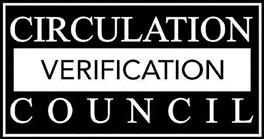



Recently, John Reid, the GOP candidate for lieutenant governor, announced that if efforts to enshrine same-sex marriage rights into Virginia’s constitution met a tie in the Senate chamber, he would vote against it.
“It doesn’t provide protection for people who sincerely don’t agree with gay marriage,” he said of the proposed amendment. “I mean, you know, I’m running to be the lieutenant governor, not to be somebody’s pastor, but I’ve got to protect everybody’s rights.”
In fact, you’re not protecting “everybody’s rights” until all people have equal rights. Moreover, nobody would want John Reid as their pastor. Not because he’s gay, but because he’s allegedly a perv according to his own party.
In April, Gov. Glenn Youngkin urged Reid to withdraw from the race after a Tumblr account with the same name as Reid’s other online profiles shared graphic sexual images. Reid refused to withdraw.
“Let’s be honest: It’s because I’m openly gay and I have never bowed down to the establishment and I will not,” Reid said in response. Isn’t opposing same-sex marriage rights quite literally the definition of bowing to “the [Republican] establishment?”
As a heterosexual GOP Kansas legislator (registered independent since August 2015), I stood against my party and supported the legalization of medical marijuana, the renters homestead credit and Medicaid expansion. A few months later, I hosted 110 members of the Heartland Gay Men’s Chorus at my home for dinner. Later that year, I spoke at their annual gala.
Why? Because these were the right things to do and I refused to bow to “the establishment.”
Having observed Levar Stoney’s failed approach to leadership, I was concerned that “establishment” Democrats would prevail on June 17. It’s no secret that Stoney is owned and operated by
wannabe Democratic “godfather” Terry McAuliffe, whose daughter served both as the former Richmond mayor’s chief of staff and campaign manager. Stoney’s campaign employed the usual underhanded tricks aimed at winning over voters who’d never heard of him. In the end, however, state Sen. Ghazala Hashmi prevailed. Republican John Reid is a conservative talk radio host and by all indications, a spineless grifter who caves under “establishment” pressure. While he is the first openly gay candidate of any party to run for statewide election in Virginia, I will proudly be casting my vote in November for the authentically anti-establishment candidate who has earned her political stripes. I encourage you to join me in electing Ghazala Hashmi as Virginia’s next lieutenant governor.
J. BASIL DANNEBOHM Fredericksburg
As a Black man and as a baby boomer, I have become very concerned for young people of color in our nation.
A person from my generation has an advantage that many of today’s teenagers and young adults may not possess. Life has afforded my generation the benefit of witnessing firsthand our nation’s social and political progression throughout the last five decades. With it comes a sense of appreciation for how Blacks gained upward economic and professional mobility in areas denied to previous generations. Looking back, older generations from my youth understood and embraced the African proverb, “It takes a village to raise a child.” Therefore, there was an emphasis on the importance of community support in raising children and fighting for societal changes on their behalf.
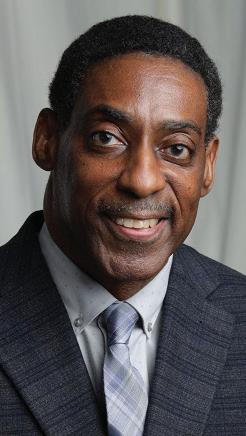
There was the understanding that children benefited from the involvement and guidance of not just their parents but also from the broader community. The ultimate success obtained by my generation was built on the social and political victories of older generations before me. Their victories in breaking down social barriers became the successes that helped secure a future of hope and prosperity for my generation. Thirty years from now, will today’s
David W. Marshall
teenagers and young adults be able to say the same thing about today’s baby boomers and Generation X?
may see the headlines but may not automatically see them as social regression sabotaging their economic and professional futures. A future where bright teenagers and young adults of color can achieve their dreams and aspirations through hard work and determination was an advantage my generation maintained because of the village. Will today’s village do the same and help younger generations prepare for what is becoming a future of racial uncertainty?
The older generations from the past understood the current social challenges of their day along with the long-term implications for children of color. Many accepted the village’s call and made personal sacrifices against the social and racial barriers in place.
As racial discrimination becomes bolder and normalized, it is occurring at an accelerated pace due to safeguards from the past being systematically removed. The full impact of the cultural and political shifts is not easy for teenagers and young adults to discern without the history and the intimate knowledge of past victories to use as a benchmark for comparison. The red flags and warning signs are loud and clear to some, but the long-term impact of racial barriers resulting from a renewed anti-Black sentiment may not be obvious to today’s youth and young adults in real time. They
For example, Gen. C.Q. Brown Jr., former chair of the Joint Chiefs of Staff, was praised for breaking racial barriers in the military and for his “warfighter” credentials. When he was sworn in as the Air Force chief of staff in 2020 during the first Trump administration, Brown acknowledged previous U.S. military service members who had been denied advancement because of their race, Time reported.
“It is due to their trials and tribulations in breaking barriers that I can address you today as the Air Force chief of staff,” Brown said.
In 2020, Donald Trump celebrated Brown’s confirmation on social media “as the USA’s first-ever African American military service chief” and noted that he had appointed him to the role. While progress has been






made, we regressed when the second Trump administration abruptly fired Gen. Brown as part of a campaign to purge the military leaders who support diversity and equity in the ranks. What message does this send to young men and women of color who seek to make the military their career? Before he was named secretary of defense, Pete Hegseth openly questioned whether Brown had been named chair because he was Black. Let’s state the truth: Hegseth has it backward. Gen. Brown, who followed in the footsteps of Gen. Colin Powell, was hired for his military credentials and was fired for being Black in leadership. The racial barriers in the military that were previously broken are being put back together by the Trump administration.
The connection between the
firing of Gen. Brown and the new U.S. Marine Corps policy must be made. The U.S. Marine Corps is eliminating waivers that previously allowed service members who suffer from razor bumps to forgo shaving — an action critics say disproportionately affects Black men. The U.S. military requires all male service members to be clean-shaven. However, the military introduced shaving waivers in the 1970s to address genetic skin conditions like pseudofolliculitis barbae (PFB), better known as razor bumps. Under the new rule, a Marine can be discharged if their condition does not improve in a year. The move is being called discriminatory by both military insiders and dermatologists. The Air Force recently changed its policy as well. Young people, with our help,
must connect the dots and see how the military policy changes, the firing of Blacks in leadership, removal of certain books from military bases, elimination of
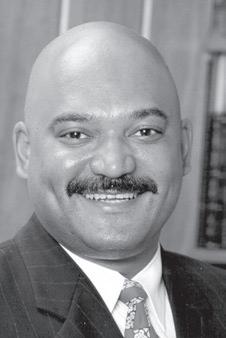
with dementia.
To learn more and see if you are eligible to participate:
• Visit www.bit.ly/3SJ7fgJ, or
• Scan the QR code, or
• Call/text us at (804) 461-3436, or
• Email us at respect@vcu.edu

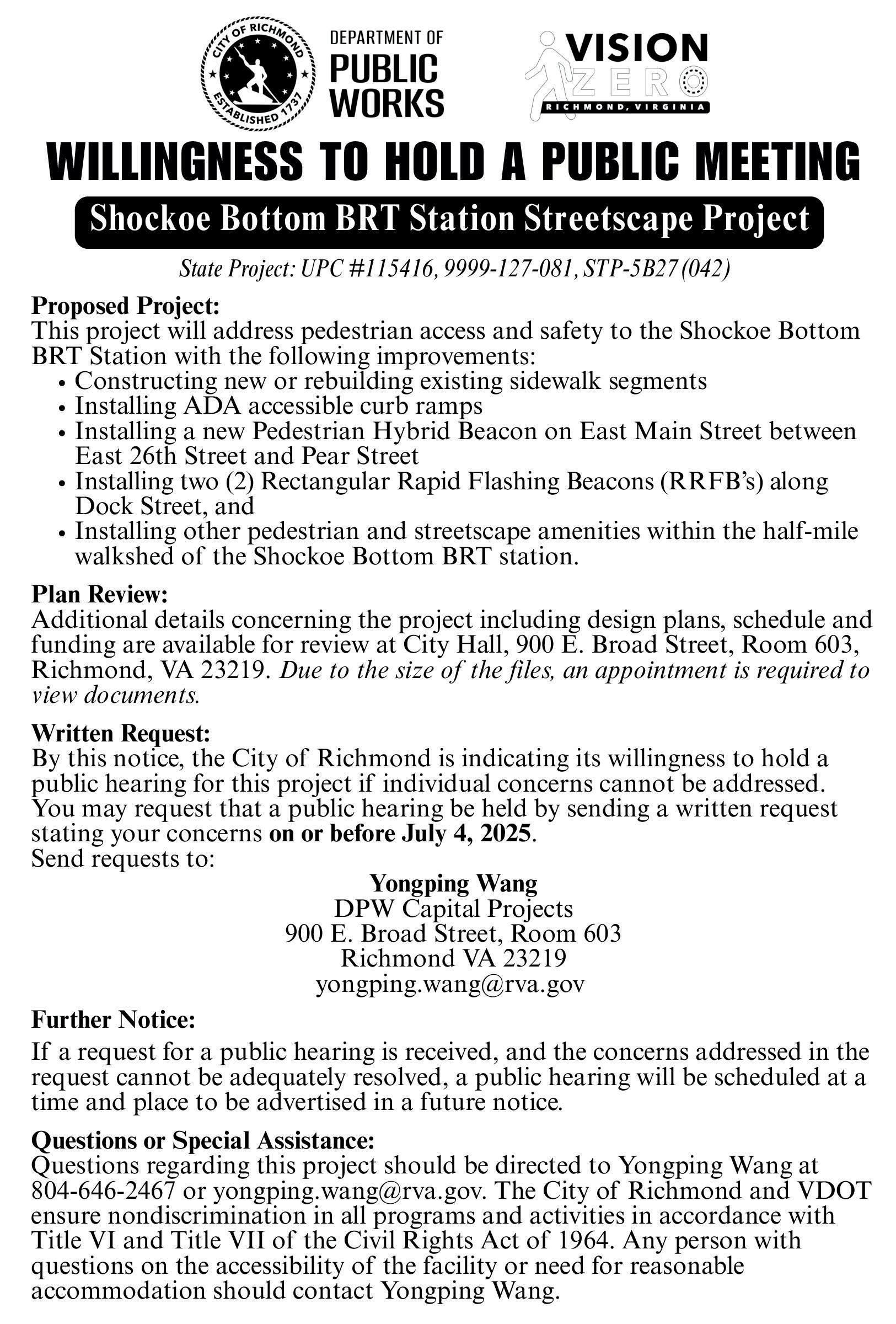
The promise came three years ago from Oklahoma City general manager Sam Presti. It might have been overlooked for a couple of reasons. One, the Thunder were awful at the time. Two, he was speaking Latin.
“Labor omnia vincit,” Presti said after the 2021-22 season, quoting a motto of Oklahoma. Depending on how Presti was translating it, it could have been “hard work conquers all” or “slow work conquers all.”
Either way, it applies to the Thunder. They did hard work. They did slow work.
They conquered all.
The Thunder — three years removed from winning 24 games — won 84 games this season and are NBA champions after beating the Indiana Pacers in a seven-game NBA Finals slugfest. For the rest of the NBA, this should be a scary development. They have the MVP in Shai Gilgeous-Alexander. He and all of Oklahoma City’s key players are under contract for next season, there’s a 2024 lottery pick in Nikola Topic who didn’t even play this season because of a torn ACL, and the Thunder currently have two picks in the top 24 in this year’s draft as well.
They are young; their starters, right now, are 27, 26, 26, 24 and 23. They

are bold. And they might — should — be contending for a while.
“We definitely still have room to grow,” said Gilgeous-Alexander, the MVP, the NBA Finals MVP, the league’s scoring champion and now, an NBA champion as well. “That’s the fun part of this. So many of us can still get better. There’s not very many of us on the team that are in our prime or even close to it. We have a lot to grow, individually and as a group. I’m excited for the future of this team. This is a great start, for sure.”
And the timing of them hitting this sort of stride is pretty good, too.
Plenty of teams have questions going into next season. Oklahoma City isn’t one of them. Jayson Tatum in Boston, Damian Lillard in Milwaukee and now Tyrese Haliburton in Indiana all have Achilles injuries and figure to miss most if not all of next season. The Los Angeles Lakers’ LeBron James will be going into his 23rd season. Golden State’s Stephen Curry is turning 38 next season.
Kevin Durant, now of Houston (in a trade that’s going to be official in the coming weeks), is going into his 18th season. Philadelphia’s hopes hinge on Joel Embiid coming back healthy. New York will be dealing with a coaching change.
Oklahoma City seems to have
Virginia Union University Associate Athletic Director and Head Football Coach Alvin Parker attended two National Football League-sponsored leadership programs June 17-18 in Atlanta: the Eighth Annual Quarterback Summit and the Ozzie Newsome General Manager Forum.
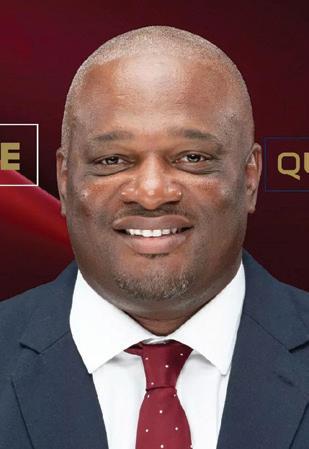
The events, hosted in partnership with the Black College Football Hall of Fame, are part of the NFL’s ongoing efforts to promote diversity and professional development across all levels of football. They provide networking and leadership training for coaches and front office personnel from Power Five conferences, historically Black colleges and universities and NFL organizations. Parker, who has led the Panthers to back-to-back CIAA championships, said he appreciated the opportunity to participate.
“Representing Virginia Union University as head coach, it’s a privilege to continue learning, growing and connecting with some of the most respected leaders in football,” Parker said. “I’m grateful for the continued support and remain committed to developing our program and contributing to the future of the game.”
Speakers at the Quarterback Summit included Pittsburgh Steelers defensive coordinator Teryl Austin; Chicago Bears offensive assistant Eric Bieniemy; Houston Texans quarterbacks coach Jerrod Johnson; Jacksonville Jaguars director of college scouting Keli’I Kekuewa; University of North Carolina offensive analyst Garrick McGee; Detroit Lions running backs coach Scottie Montgomery; Dallas Cowboys director of strategic football operations John Park; and University of Maryland offensive coordinator Ted White.
Launched in 2021, the Ozzie Newsome General Manager Forum prepares current and aspiring front office executives through leadership discussions and strategy sessions with NFL veterans and executives.
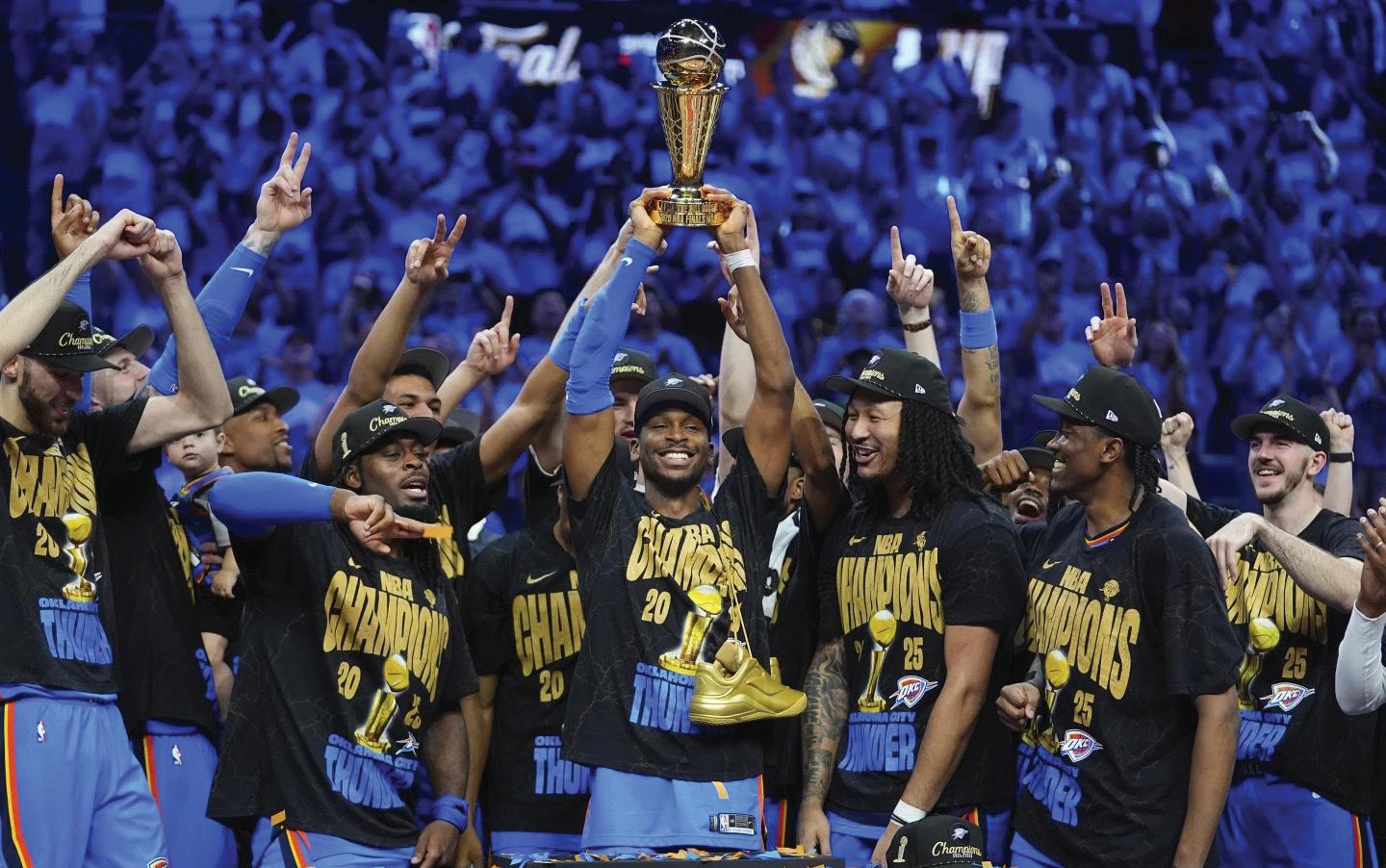
everything right in place.
“They have a lot of great players on this team,” Pacers coach Rick Carlisle said.
Gilgeous-Alexander, Jalen Williams and Chet Holmgren all seem to enjoy playing with and off one another, none of them caring who gets credit. Alex Caruso and Isaiah Hartenstein fit seamlessly into the roles the Thunder asked them to play. Luguentz Dort is a defensive machine and has come to realize that most people don’t have the ability to appreciate how good he is at that end.
It’s not just the players who don’t care about puffing out their own chests. The same goes for the leadership.
“You’re not guaranteed anything in the league,” Caruso said. “I think that’s the biggest thing that happens
year to year that people forget about.
Any moment your team can change with a trade, with an injury, with something that’s out of your control.
To be able to get to the pinnacle of this sport and win it is nothing short of extraordinary. To think that you can just walk in and do it every single year is a little bit naive. Rest assured, we’ll show up Day 1 next year ready to get better and ready to chase this again.”
Presti, the architect of it all, rarely speaks publicly. Same goes for Clay Bennett, the owner. And coach Mark Daigneault is the calm in the eye of any storm, the perfect driver of the Thunder bus.
“There’s no guarantee you end it the way that we did,” Daigneault said. “I just wanted it so bad for them. I was

Preston Branzelle of the Virginia State University baseball team has been named to the Virginia Sports Information Directors (VaSID) All-State second team.
Branzelle, a standout pitcher for the Trojans, logged 72.1 innings this season with a 6.10 ERA and a 1.78 WHIP. He threw five complete games, including a shutout against Lighthouse Christian College on April 15. He led the team in wins with five and struck out 53 batters.
VaSID promotes the accomplishments of student-athletes across Virginia and supports sports information professionals at the state’s colleges and universities. The organization was founded in 1983 and includes members from NCAA, NAIA and community college institutions throughout the state.
Free Press staff report
Chesterfield County will add seven new members to its Sports Hall of Fame, honoring local athletes who have made significant contributions to the community’s sports legacy.
A graduate of Matoaca High School and VCU’s first Black basketball player, Charles McLeod earned All-District, All-Region and All-State honors in high school and helped start VCU’s first Black student organization. He was inducted into the Legends of Matoaca High School in 2016 and received a 2021 CCPS Bravo Award.
Lennie Pond, the 1973 NASCAR Winston Cup Series Rookie of the Year, grew up in Ettrick and raced extensively at Southside Speedway before a career that included 234 Cup starts, 88 top-10 finishes and a victory at Talladega. Pond later returned to compete in the late-model division at Southside Speedway
in the late 1990s. Leading her Monacan High School team to three state basketball championships, Megan Walker was named the 2017 Gatorade National Player of the Year. She became a First Team All-American at UConn and was selected ninth overall in the 2020 WNBA Draft by the New York Liberty.
just so thrilled that we were able to get that done and they get to experience this because they deserve it. The way they approach it, the professionalism, competitiveness, team-first nature, like I said, I wanted it so bad for them.”
The journey isn’t over for the Thunder. It’s just starting. Presti has a war chest filled with draft picks and the team has some financial flexibility to add a piece if it so chooses. And now there’s a title to defend. Labor omnia vincit. There’s more work to do.
“We have a lot of hard work in front of us,” Presti said that day in 2022. “We have to grind in and do it. That’s what the state is about. That’s what the history of the community is about. That’s what the basketball team here is about.”

Richmond closes first half with first series win of 2025
Free Press staff report
John Michael Bertrand pitched six scoreless innings and Turner Hill tied a franchise record for triples as the Richmond Flying Squirrels beat the Altoona Curve 2-1 on Sunday at Peoples Natural Gas Field. Richmond (21-46-1) closed the first half of the Eastern League season with its first series win of 2025, taking two of three games against Altoona (30-38) on the road this week. Bertrand (2-6) allowed two hits, one walk and struck out two in six innings. He retired the first nine batters he faced before Mitch Jebb singled to lead off the fourth. A double play erased that runner, and Bertrand faced the minimum over his first five innings.
The Flying Squirrels took a 1-0 lead in the first inning when Diego Velasquez doubled and later scored on Hill’s triple off Altoona starter Emmanuel Chapman (5-2). Hill hit a second triple in the fourth inning and scored on a sacrifice fly by Thomas Gavello to extend Richmond’s lead to 2-0. Hill matched the single-game franchise record by hitting two triples, joining Francisco Peguero (2011), Slade Heathcott (2017) and Caleb Gindl (2017).
Reliever Cameron Cotter struck out three batters in the seventh inning, while Ian Villers threw a perfect eighth.
Braxton Roxby earned his third save despite allowing a run in the ninth. After a walk and a two-out error on a pickoff attempt, Nick Cimillo doubled to bring Altoona within 2-1. Sammy Siani then grounded out to end the game.
The run ended Roxby’s streak of 13 consecutive games without allowing an earned run, his first since April 29.
The Flying Squirrels opened the second half on Tuesday at The Diamond against the Reading Fightin Phils, the Double-A affiliate of the Philadelphia Phillies.
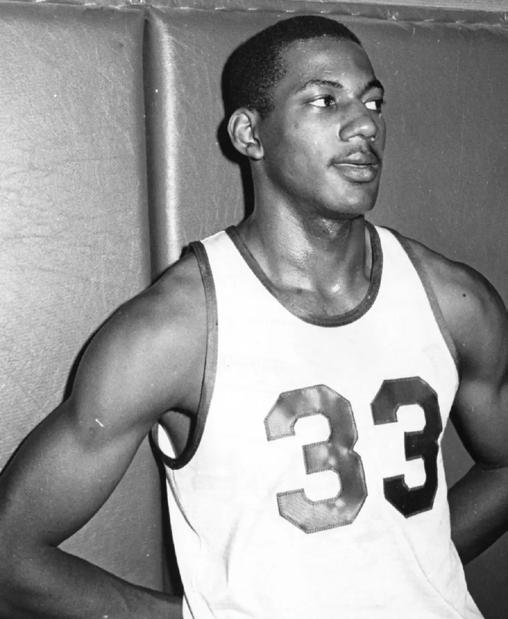
Starting football at age six, Rudi Johnson developed into a standout running back who set the Cincinnati Bengals’ single-season rushing record and earned Pro Bowl honors during his NFL career. He is a graduate of Thomas Dale High School.
A former pitcher at VCU and Manchester High School graduate, Sean Marshall was drafted
by the Chicago Cubs in 2003. He finished his Major League Baseball career with 37 wins, 16 saves and a 3.66 earned run average.
Taylor earned First Team All-American honors at Syracuse University after beginning her collegiate soccer career at the University of Richmond. The James River High School graduate led the NCAA in goals and points, played on the U.S. National Team that won gold at the 2011 Pan American Games, and competed in the 2012 Olympics.
Known as “Boogie,” William Henderson played fullback for the Green Bay Packers, winning Super Bowl XXXI and earning a place in the Packers Hall of Fame. The Thomas Dale High School graduate ranks fifth in most games
played in team history.
“This new class of athletes to be inducted into the Chesterfield Sports Hall of Fame continues to exemplify the high-level of athleticism that is rooted in our community,” said J.C. Poma, executive director of Chesterfield’s Sports, Visitation and Entertainment Department. “We are excited to welcome these new members into the county’s Sports Hall of Fame and celebrate their accomplishments here in Chesterfield.”
Established in 2024 and presented by Virginia Credit Union, the Chesterfield Sports Hall of Fame pays tribute to athletic greats who have contributed to the county’s deep sports history and legacy. Inductees’ names will be displayed on the Hall of Fame wall at River City Sportsplex, located at 13030 Genito Road. A recognition banquet will be held Thursday, Sept. 18, at the Perkinson Center for Arts and Education.
A lifelong Scout and now Scoutmaster of Troop 432 at Good Shepherd Baptist Church, Alan Meekins recently received Scouting America’s Silver Beaver Award, honoring his decades of dedication to the Scout Oath and Law.
The award is the highest honor a local Scouting America council can give an adult volunteer and recognizes Meekins’ distinguished service to youth at the council level. It reflects the core values of Scouting and his commitment to serving others.
Black Scout troops can be traced back to at least 1915. Good Shepherd can trace its origins back to 1965, as a part of the Fredrick Douglass District. In 1971, the Fredrick Douglass Troops merged with the other troops in Richmond and became the Capitol District, according to Meekins.
When Troop 432 at Good Shepherd was inactive for several years, Meekins saw an opportunity to reactivate the charter. He wanted to offer youth the same opportunities he had to learn and understand Scout values.
“I was looking for something at church where I could make an impact,” Meekins said. “A conversation with a friend from my scouting days sparked an interest in bringing Scouting back to Good Shepherd.” Meekins and his friend rechartered the troop with nine boys in 2012. Six of the boys went on to earn the rank of Eagle Scout, Scouting America’s highest achievement. The national average for earning the Eagle Scout is less than 10% of all scouts, making the reactivation of Troop 432 a success.
Leading Troop 432 has provided challenges for Meekins. During the pandemic, troop involvement hit an all-time low


due to social distancing.
“We tried to meet on Zoom, but it wasn’t working,” Meekins said. “The kids were already meeting on Zoom for school, and scouting is hard to do on Zoom.”
Scout troops must have at least five registered Scouts to keep their charter. To meet this requirement, Meekins and other troop leaders from five area churches combined their troops into what they call the ‘Gumbo Troop’. They held meetings in parks and conducted activities together, helping keep Scouting alive in the community.
“We were all struggling to meet the minimum of five kids to keep our charters and our programs functioning,” Meekins said. “We call it the Gumbo Troop because all the troops come together as one. If we didn’t do that, we wouldn’t have been able to meet the minimum of five kids.”
Meekins, a retired engineer, serves as a trustee and treasurer at Good Shepherd Baptist Church and is active in the Men’s Ministry and Media Ministry. He was a longtime board member of the Richmond Area Program for Minorities in Engineering, now the Richmond Minority Engineering Partnership, where he helped develop a summer program to expose middle and high school students to careers in STEM fields.
When he’s not enjoying time with family and friends or pursuing his volunteer obligations, he can be found on the pickleball courts.
What is your profession?
I’m retired! I worked for Dominion Energy for over 38 years. The last position I held there was director of market operations. I returned to work after a brief break when I worked for five years at Primoris as a
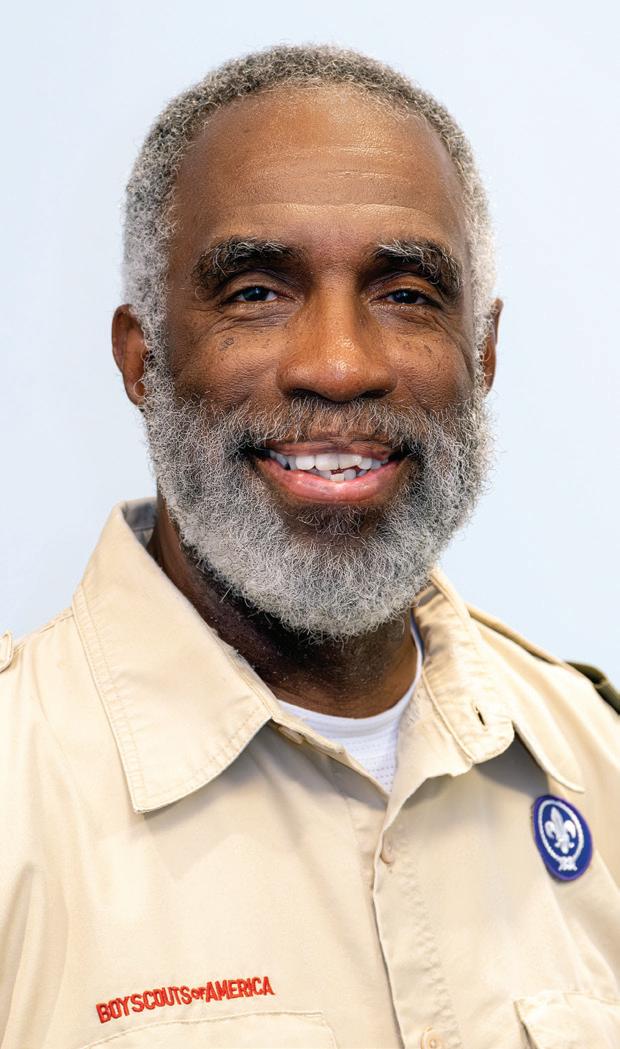
project manager.
Where do you live?
Varina.
Where did you go to school?
I earned a bachelor’s degree in electrical engineering and an MBA at VCU.
What is Scouting America?
It’s what used to be called the Boy Scouts of America. We are one of the largest youth organizations in the U.S., with over a million boys and girls participating in programs each year. The combination of traditional outdoor activities with modern skills, such as STEM, digital technology and environmental stewardship, offers youth the chance to develop character, leadership and a sense of responsibility.
How did you react to learning that you were selected as a Silver Beaver Awardee? I was not expecting it, so I felt a mix of shock and disbelief that my contributions warranted such recognition. It is truly
an honor to have been nominated and selected to receive this award. I know several past recipients of the award, most have been associated with Scouting for far longer. Why do you think you were nominated?
I think there are two reasons. First, I was involved in helping to reactivate Troop 432, which had been dormant for several years. The second reason is related to effort. I have been involved with keeping Scouting viable in several historically Black churches in the city of Richmond.
What is the Heart of Virginia Council?
It’s a regional council of Scouting America that covers Central Virginia. The Heart of Virginia Council is subdivided into five districts and my troop is a part of the James River District.
What is your background with the Boy Scouts of America?
I joined Scouting as a youth and was active for over two years. I was an active parent as my son progressed through Cub Scouts, earning his Arrow of Light, and a little less active when he became a Scout. He stayed in until high school, when he pursued other interests. I reunited with Scouting when we began the process to reactivate the troop.
How does scouting impact young people?
Scouts have fun with a group of kids while learning new skills, exploring topics through merit badges and developing character traits and habits that prepare them for life.
What does it take to be an outstanding Scoutmaster?
Commitment to the task.
How many hours do you devote to being a Scoutmaster?
It varies from about two to five hours a week with weekly meetings, but I spend more time on trips or activities.
What’s the No. 1 lesson I teach my troop?
Be prepared, which is the Scout motto. I want them to understand that it applies to all aspects of their lives, both now and in the future.
How many scouts do you lead currently, and what are their ages?
There are five active Scouts in Troop 432, and seven active Scouts in the other Gumbo units. We currently have active Scouts ranging in age from 11 to 17.
Who comprises the Gumbo Troop?
The collective of five church Troops in Richmond includes Troop 432, Troop 478, Troop 480 from Moore Street Missionary Baptist Church, Troop 486 from Fifth Baptist Church and Troop 491 from Providence Park Baptist Church.
What are some things your troop has accomplished?
The Scouts have completed merit badges that contribute to their growth, skill development and readiness for the future. They’ve attained rank, meaning their responsibilities have grown, which improves leadership and other skills, and they’ve completed service projects. Our Gumbo Troop has seen four Scouts reach the rank of Eagle, and we have five Scouts who have earned enough Merit badges to become Life Scouts soon.
How can young people join your troop?
They can reach out to our church office or any of the Gumbo Troops to let us know they’re interested in Scouting.
We’re also online at beascout. scouting.org. Our meetings are held on Thursday at 6:30 p.m. at Moore Street Missionary Baptist Church at 1408 West Leigh St. Anyone who’s interested can also email us at gumboTroopsRVA@gmail.com. Are there adult volunteer opportunities with my troop?
Adults can participate in leadership by becoming assistant scoutmasters, sharing their skills as Merit Badge counselors, participating as committee members or simply volunteering to accompany the group on outings. Anyone interested in volunteering can email us at gumboTroopsRVA@gmail. com or contact one of our churches.
How do you start your day? With a moment of gratitude, some light stretching and Wordle.
What are three words that describe you?
Logical, kind and dependable.
What would you do if you had 10 extra minutes in the day?
Play another game of pickleball.
What are the top three songs on your music playlist?
“Before I Let Go,” by Maze Featuring Frankie Beverly; “September,” by Earth, Wind & Fire: “As,” by Stevie Wonder. What is something you love to do that most people would never imagine?
I have been learning to fly a drone and studying for the Part 107 Remote Pilot Certificate, issued by the FAA.
What is a quote that inspires you?
“We water the seeds of trees, whose shade we will not enjoy.”
What’s your next goal? I want to spend time travelling with my wife, Marcia.

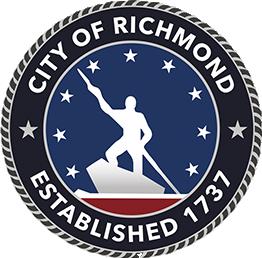






By Davy Jones
Kori Withers, daughter of soul legend Bill Withers, will bring her father’s beloved songs and stories to life in a special performance at the Cultural Arts Center in Glen Allen. The concert, set for Saturday, June 28, will feature both afternoon and evening seatings.
The show is part of a larger effort to celebrate the spirit of friendship, kindness and community that runs through Bill Withers’ music — and through the work of FreeHorse Arts, a local nonprofit providing equine-based programs for people with diverse abilities.
Withers’ involvement with the program runs deeper than the two shows; she serves on the board of FreeHorse Arts, having heard about the program from co-founder Nancy Munoz. The nonprofit’s mission resonated with her because it reflected her father’s lifelong bond with nature, shaped by his upbringing in West Virginia and expressed through his approach to fatherhood.
The legendary composer of “Lean on Me” and “Ain’t No Sunshine” took Kori’s older brother, Todd, on school-hosted father-son dude ranch trips.
“My dad was crazy-proud of my brother, because he was the only kid that could mount a horse,” Kori says.
She says her father made her promise to always stay connected to the animals, whose calm demeanor and quiet depth gave him a place of peace. FreeHorse Arts offers a way to fulfill that promise.
“A big part of our work as a family is trying
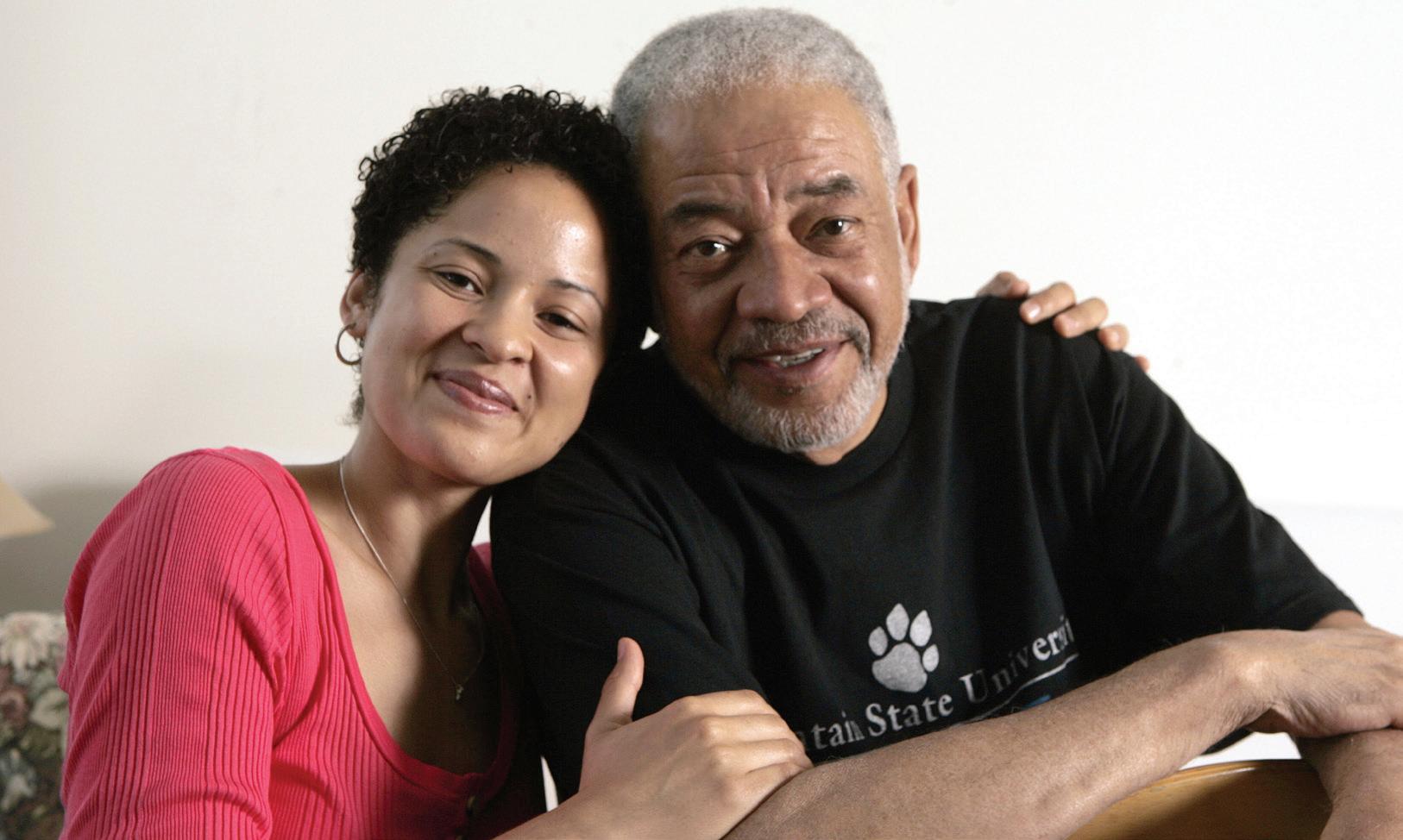
to return to the landscape that inspired his sound,” Kori says.
Having dealt with a childhood stutter, Bill Withers knew what it meant to be seen as differently abled. His daughter explains that he came to regard this challenge as a kind of superpower.
“There was an advantage to his difference,” Kori says. “He was much more interested in
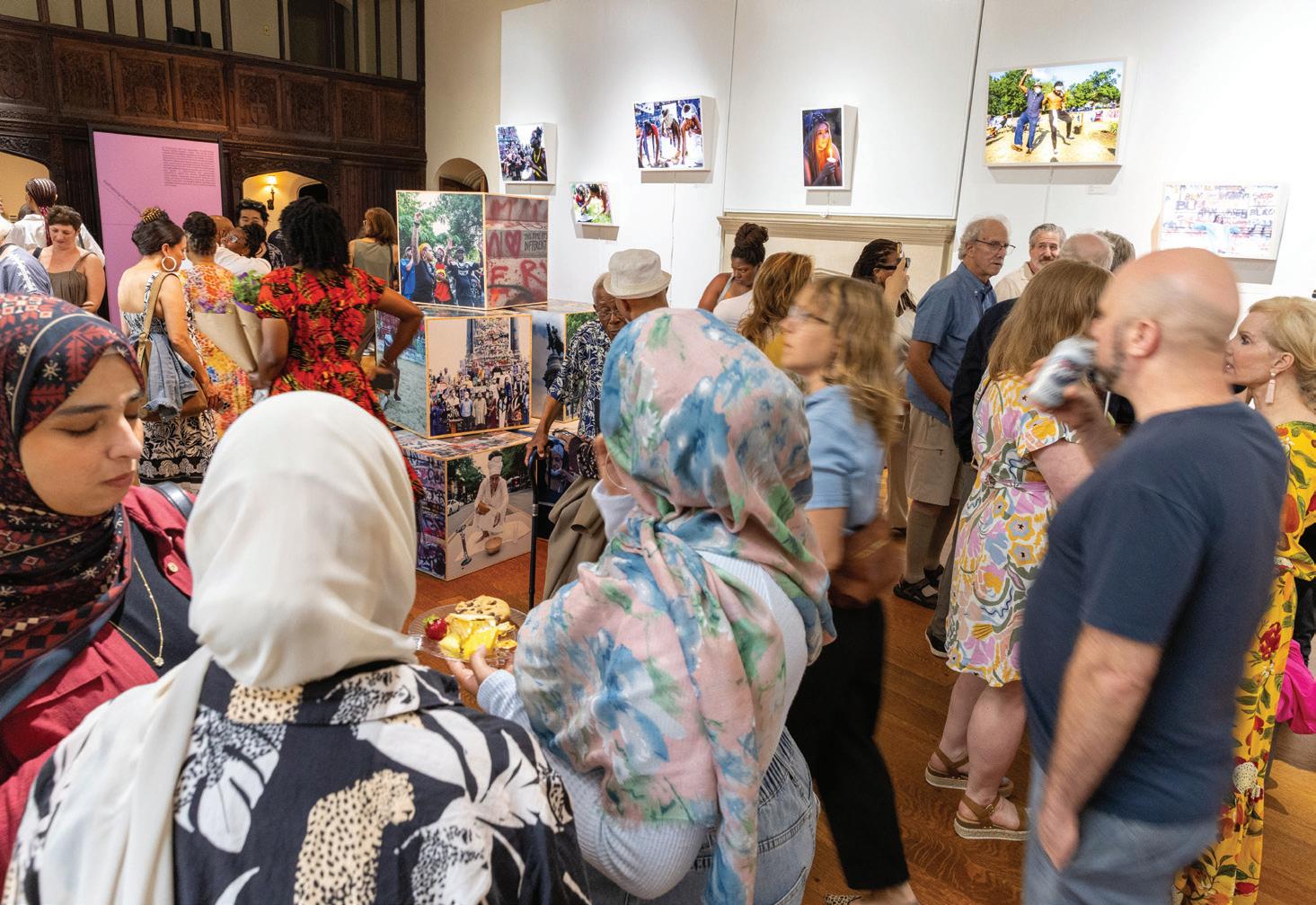
Free Press staff report
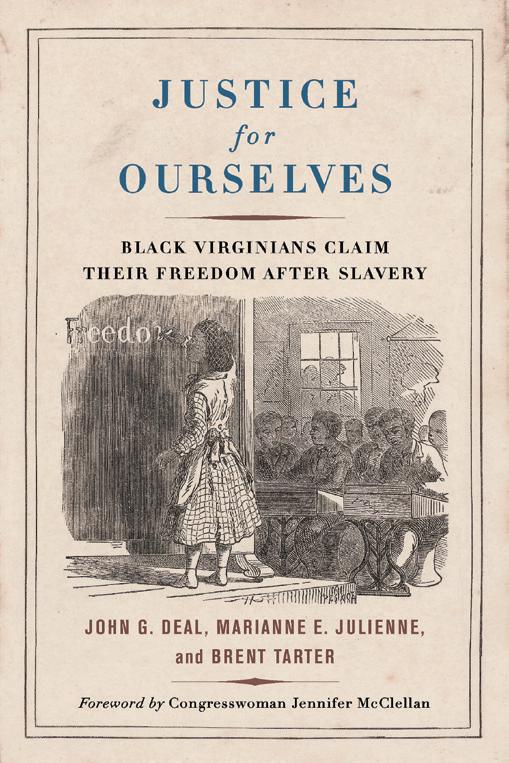
Library of Virginia editors John G. Deal and Marianne E. Julienne and historian Brent Tarter have received this year’s Richard Slatten Award for Excellence in Virginia Biography from the Virginia Museum of History & Culture for their book “Justice for Ourselves: Black Virginians Claim Their Freedom After Slavery.” Published in 2024 by the University of Virginia Press in association with the Library of Virginia, the book offers a new look at how Black Virginians defined and secured their freedom after the end of slavery. Drawing on life stories from across the state, the authors describe how individuals worked to gain full citizenship and economic independence before the rise of Jim Crow laws.
The book is based on extensive primary source research, much of it from the Library’s collections, and highlights the lives of political leaders, teachers, clergymen, journalists and entrepreneurs, along with lesser-known people whose records have survived.
The Richard Slatten Award, established in 1997 through a bequest, recognizes outstanding work in Virginia biography and includes a $1,000 prize. The book is available through the Virginia Shop at the Library.
people who are different, who had a heart and something human to bring to the table.”
“The folks who are involved with FreeHorse Arts in general share a similar passion and vision for the world,” says Alex Ginsberg, FreeHorse Arts’ creative director. “They’re all very caring, thoughtful, creative [and] are committed to the impact — committed to
creating [a] conscious community.”
The concert, the second installment in FreeHorse Arts’ Songwriters series, combines two of the nonprofit’s weekly programs: the in-person live sessions and the online InterConnected workshops. Withers, an accomplished songwriter herself, participated in some virtual sessions to share her expertise as part of a comprehensive curriculum covering everything from lyrical inspiration to recording, mixing and publishing In addition to Bill Withers’ material, the show at the Cultural Arts Center will feature a new song called “Love Sandwich,” which was written by the FreeHorse Arts Herd. The First African Baptist Church choir will provide a vocal assist, part of a lineup of local guests that also includes the City Dance troupe, which learned choreography for Withers’ “Harlem,” and members of the versatile funk and soul band Weekend Plans.
Want to go?
Withers will perform and share stories celebrating
“The idea that we need to help each other, support each other, forgive each other [and] root for each other is a timeless concept. Maybe that›s why his songs continue to be relatable,” Kori Withers says of her father ’s music.
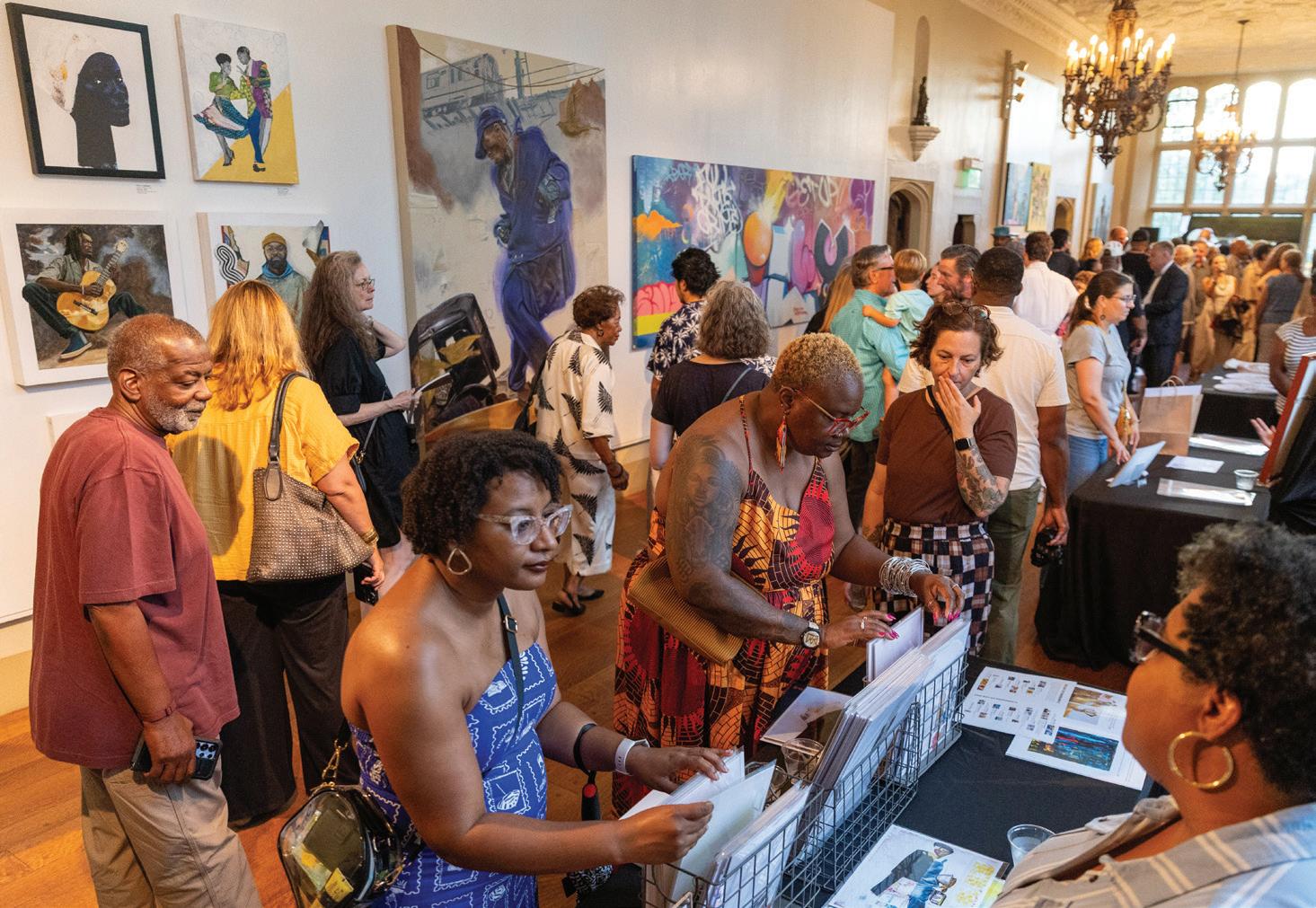
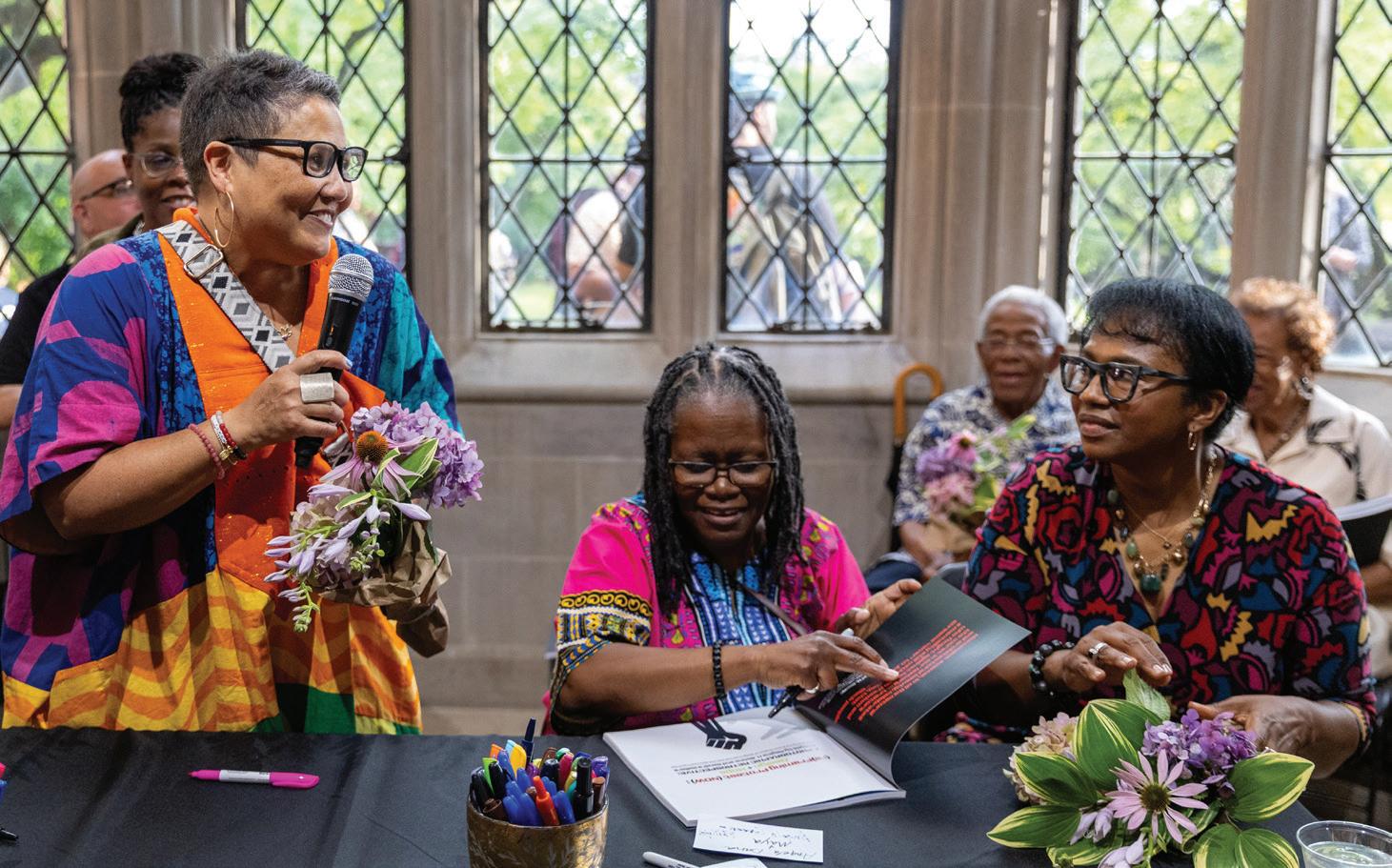
Free Press staff report
Three community preservationists have been selected for the 2025 African American Fellows Program at Preservation Virginia, an initiative designed to support the study and protection of African American historic sites across the state.
Part of the “Voices Remembered” initiative, the fellowship is now in its third year. The selected fellows will spend the summer working with Preservation Virginia staff, engaging with mentors, and continuing research projects in their own communities. The program, which launched in 2021, is guided by an advisory committee of Black leaders and scholars and funded by a grant from the Mellon Foundation.
“Each year, it is more and more difficult to make the selection of summer scholars; these three participants in the third cohort were chosen because of their previous partnerships with Preservation Virginia and overwhelming commitment to their communities,” said Lisa Winn Bryan, community outreach manager at Preservation Virginia.
Karice Luck-Brimmer, from Pittsylvania County, brings more than two decades of experience as a genealogist and public
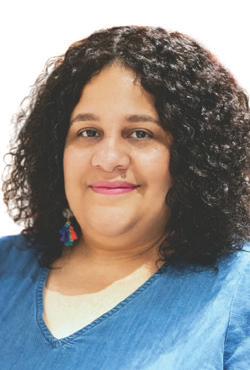

historian, focusing on African American communities in the Dan River region. She has served on the Virginia Board of Historic Resources and has been featured in The Washington Post, People magazine and 60 Minutes. Her fellowship work will focus on preserving sacred burial grounds, historic Black churches and oral traditions in Pittsylvania County, building on efforts such as the Danville Research Center for African American History and Culture.
Another fellow is Sheila K. Wilson Elliott, of Capon, a tribal historian for the Nottoway Indian Tribe of Virginia with more than 40 years of experience in pharmacy services. She currently chairs the tribe’s nonprofit arm and has led its genealogy committee. Her research will
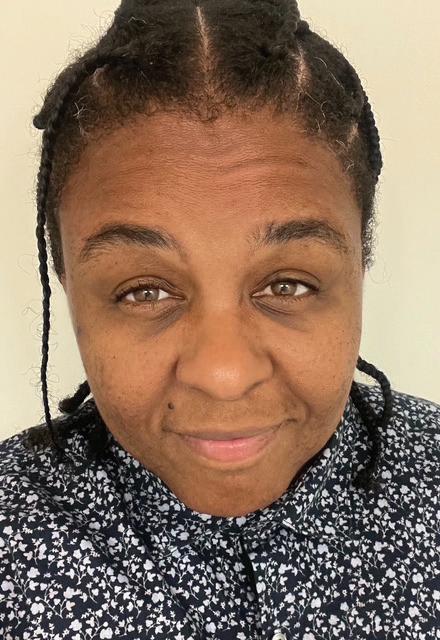
explore the intertwined histories of Nottoway Native Americans and African Americans, tracing lineages and highlighting the cultural survival shared between the groups.
The third fellow, Marlo Green, of Peterburg, is a certified public accountant and director of financial operations at Virginia State University who discovered the history of Pocahontas Island in 2021. Inspired by the island’s rich cultural heritage, she is researching the historic Jarratt House as part of her fellowship. She said the opportunity allows her to contribute to preserving an important part of Petersburg’s history. Voices Remembered elevates overlooked Black voices and ensure their stories are preserved and connected to contemporary communities. Preservation Virginia is a nonprofit organization that promotes stewardship of historic places across the commonwealth through advocacy, education and revitalization efforts. More information is available at preservationvirginia.org.
By George Copeland Jr.
For more than five decades, Willie J. Banks Jr. was a trusted surgeon and a medical asset to Virginia and Washington, D.C. His skills served patients in a wide range of settings, and his commitment to caring for others was a family legacy that continues after his death on May 21 at age 81.
“The man is very accomplished,” Banks’ lifelong friend John T. Fleming said. “When you look at his resume and his credentials you’re not going to have any problem acknowledging him as an outstanding citizen.”
Banks was born on July 4, 1943, in Richmond to Willie J. Banks, Sr. and Corrine E. Banks, the last of the family’s eleven children. Fleming said “Dr. B” benefited from both a nurturing home life and dedicated teachers.
Banks excelled in school, graduating from Maggie L. Walker High School in 1961 as a member of the National Honor Society. In 1965, he graduated with honors and a bachelor of science in 1965 from Virginia Union University after serving as president

Free Press staff report
Union Presbyterian Seminary announced a key leadership change this month, welcoming a new leader and honoring longtime staff.
Tamica Goode began her role as vice president for finance and administration on June 23. Goode brings more than 25 years of experience in corporate finance and nonprofit stewardship, with previous roles at Markel, Capital One, the University of Richmond, Owens & Minor, Carmax and Marriott International. She has an MBA from the University of Virginia’s Darden School of Business and a bachelor’s degree in accounting from UVA.
“I’m excited to bring my experience to Union Presbyterian Seminary and look forward to contributing to its mission and future,” Goode said.
Union Presbyterian Seminary President Jacqueline Lapsley praised Goode’s background and welcomed her to the leadership team.
“She will be a wonderful colleague as we work to fulfill UPSem’s mission of preparing leaders for gospel-inspired transformative change,” Lapsley said.
The seminary also announced an upcoming retirement. Keith Fauber, facilities manager at the Richmond campus, will retire July 31 after 15 years of service. John Wilson, director of technology and media services, thanked Fauber for his leadership in maintaining the seminary’s historic buildings.
“Keith has earned a peaceful and relaxing retirement,” Wilson said.
Free Press staff report
The Ahmadiyya Muslim Community will host its annual U.S. convention, Jalsa Salana USA, on Saturday, June 29, at the Greater Richmond Convention Center, drawing attendees from across the country for a day of religious discussion, exhibitions and community building.
The event runs from 10 a.m. to 5 p.m. and features a full schedule of speeches, panel discussions and exhibits focused on faith, human rights, interfaith relations and the teachings of Islam. Organizers describe the gathering as an opportunity to promote understanding and fellowship across religious and cultural lines.
Exhibitions will highlight topics such as the Holy Qur’an, the role of Islam in the modern world and the community’s humanitarian efforts. The convention also includes displays focused on interfaith relations, civil rights and social issues.
Free meals are provided throughout the day and served by volunteers. According to organizers, the convention is
staffed entirely by members of the Ahmadiyya community, many of whom travel from across the country to help run the event. Jalsa Salana, first held in the United States in 1948, is part of a global series of annual conventions organized by the Ahmadiyya Muslim Community. The free event has previously been held in cities including Harrisburg, Pa., and Silver Spring, Md., and returns to Richmond this year.

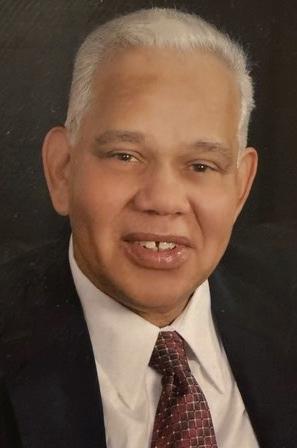
of the Student Government Association and Pan-Hellenic Council.
Banks’ interest in medicine and caring for others showed early. His classmate and friend Charles Saw recalled how Banks contributed to the school football team by assisting the nurse and doctor on the field.
Banks furthered his education at the Howard University College of Medicine in Washington, D.C., graduating with honors and a doctor of medicine degree in 1970.
Following his residency, Banks began a medical career that spanned the D.C. and Northern Virginia areas, including time at the Walter Reed National Military Medical Center. His mission of community service was shared by his siblings Marshall, who served as a urologist and later Catholic deacon, and Joan, the former executive director of the Gold Bowl Classic college
football games.
Beyond his medical practice, Banks pursued further studies at Georgetown University, Johns Hopkins University School of Medicine, New York University and Yale University School of Medicine.
He was initiated in spring 1963 into the Virginia Union University chapter of Alpha Gamma of Kappa Alpha Psi Fraternity Inc., served as chapter polemarch for several years and was a member of the fraternity’s Eastern Province board of directors.
He served in the U.S. Navy and is remembered as an outgoing yet humble man who never stopped learning and was always a welcome presence.
“Willie was a special guy, he was very unique,” Shaw said, “ He would extend his hand to anyone, [and was] very knowledgeable, not just in medicine.”
Banks is preceded in death by his parents and his 10 older siblings. He is survived by his sister-in-law Kathy D. Banks, nieces, nephews, cousins and friends. There will be no public funeral service.
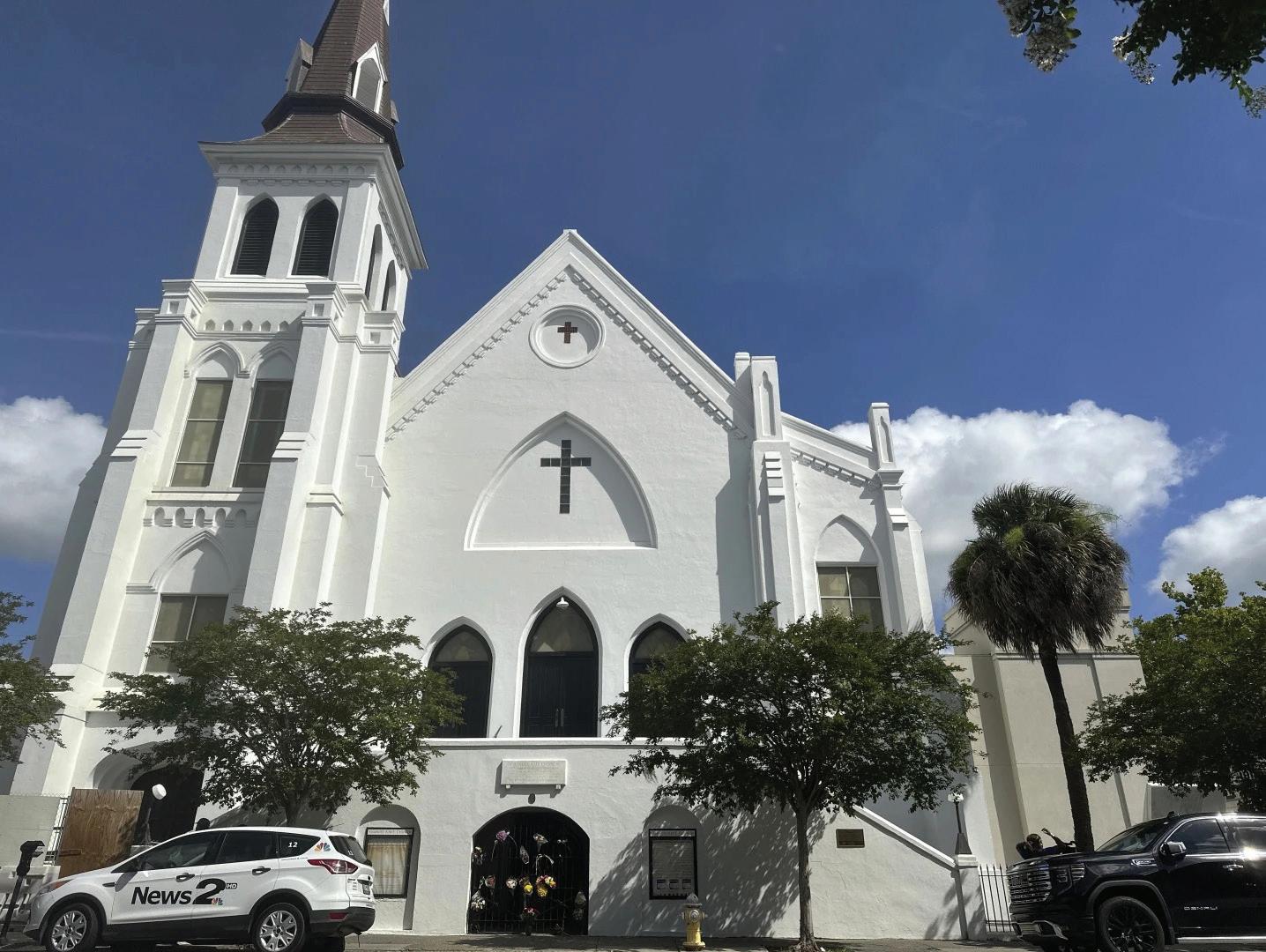
A documentary about Rev. Daniel Simmons Sr., one of nine people killed in the 2015 shooting at Mother Emanuel African Methodist Episcopal Church in Charleston, S.C., will be screened on July 1.
“One Last Breath: The Daniel Simmons Story” explores Simmons’ life, from his rural upbringing to his decades of service as a pastor, assistant pastor and interim elder at Mother Emanuel. The film uses archival footage, survivor interviews and family reflections to revisit the tragedy and show how Simmons’ faith and compassion shaped countless lives.
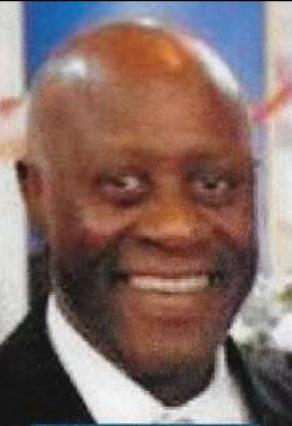
The shooting shocked the nation when a 21-year-old white supremacist opened fire during a Bible study, killing
Simmons and eight other worshippers. The film examines not only the horror of that day but also the strength, forgiveness and healing that followed, focusing on his daughter, Rose Simmons, who has become a national advocate for faith-based healing and gun violence prevention. Following the screening, a panel discussion will feature Rose Simmons, along with Richmond City Councilwoman Stephanie Lynch and other community leaders. Clovia Lawrence of Coming Together Virginia will moderate the conversation. The event begins at 6:30 p.m. at the Virginia Museum of History & Culture. Tickets are $20. Proceeds will benefit Coming Together Virginia’s Good Faith In Action series. For more information, visit comingtogetherva. org or call 804-442-3635.
